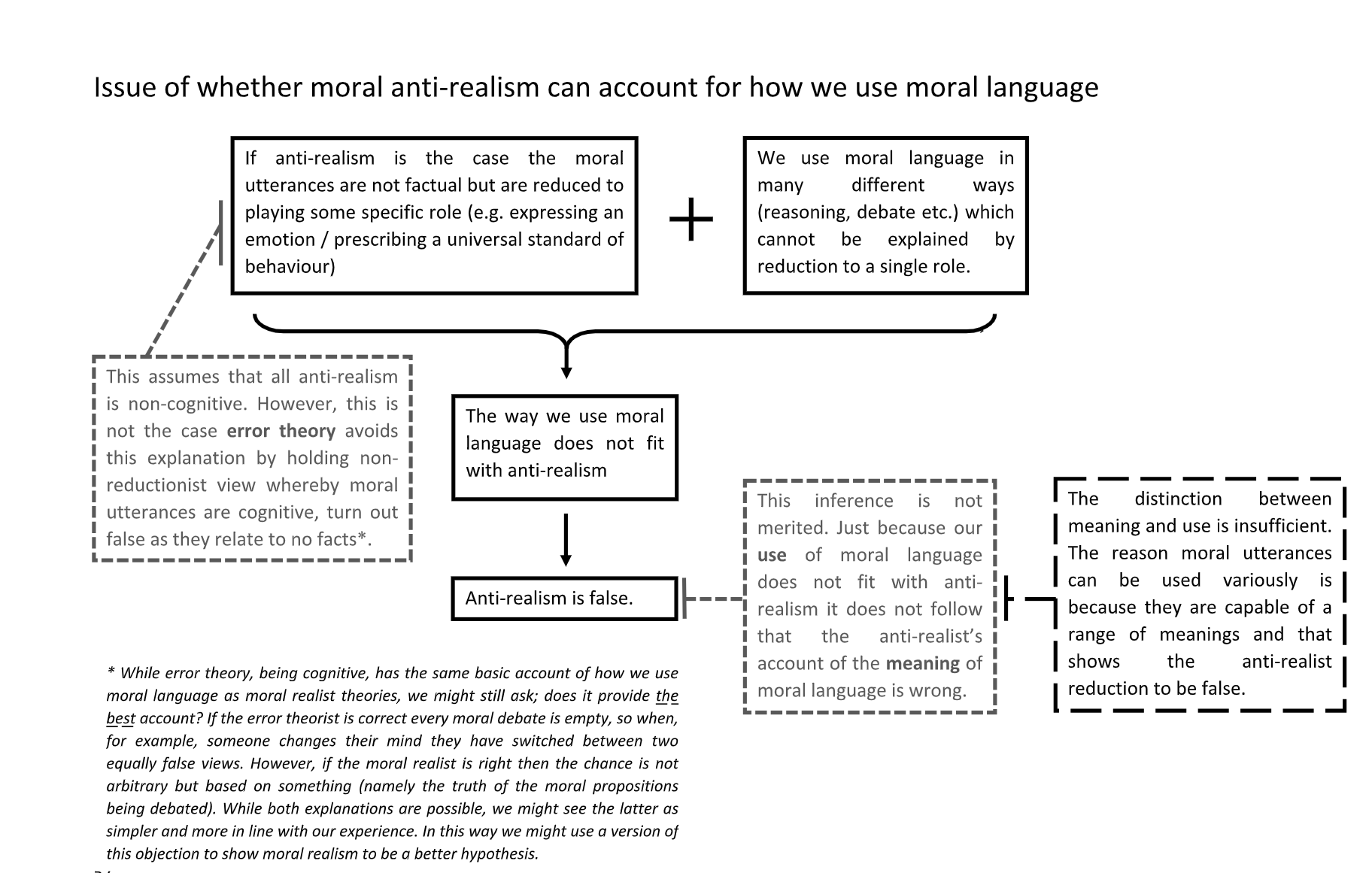Moral philosophy
1/33
There's no tags or description
Looks like no tags are added yet.
Name | Mastery | Learn | Test | Matching | Spaced | Call with Kai |
|---|
No analytics yet
Send a link to your students to track their progress
34 Terms
Quantaitve Util
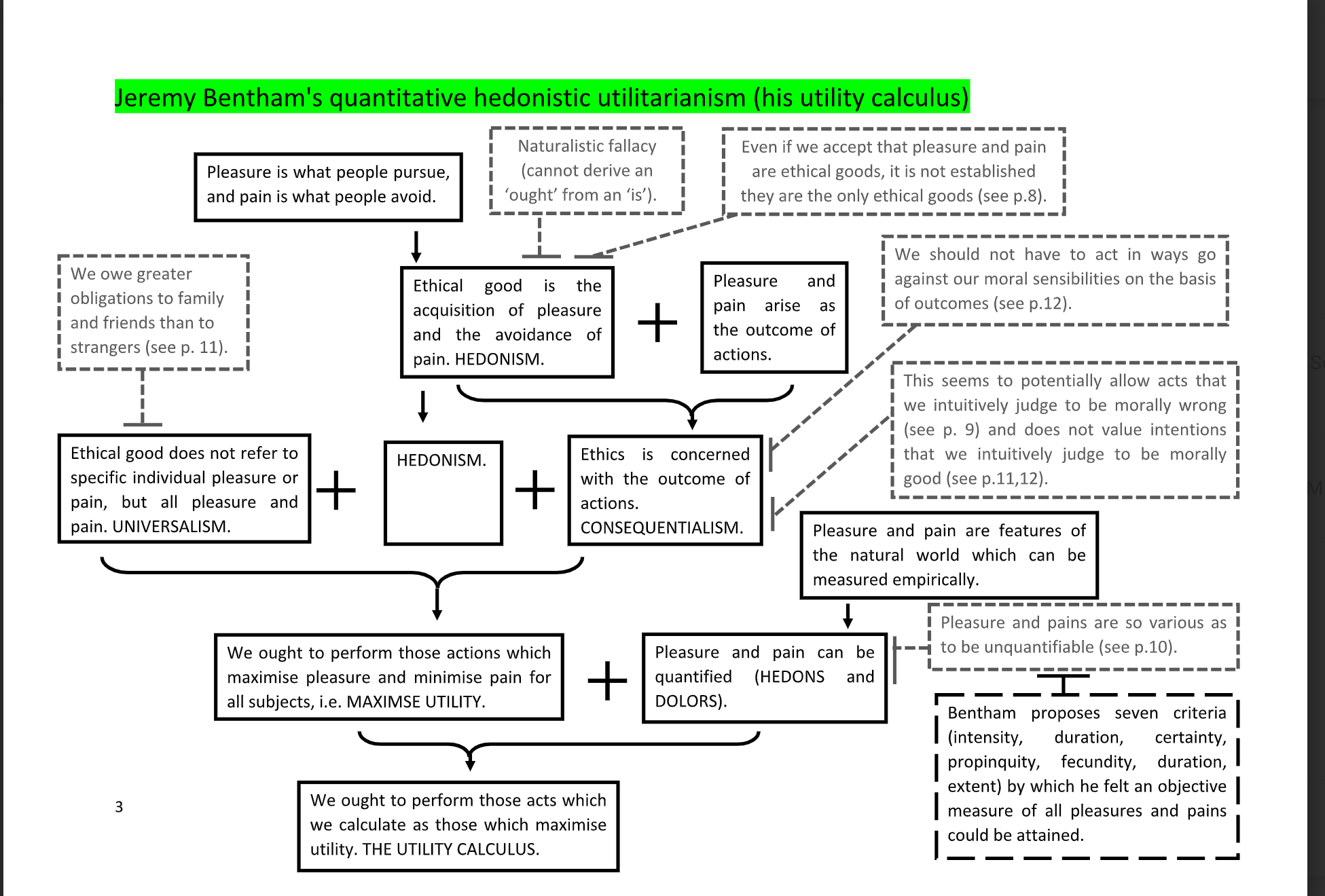
Qualitiative Util
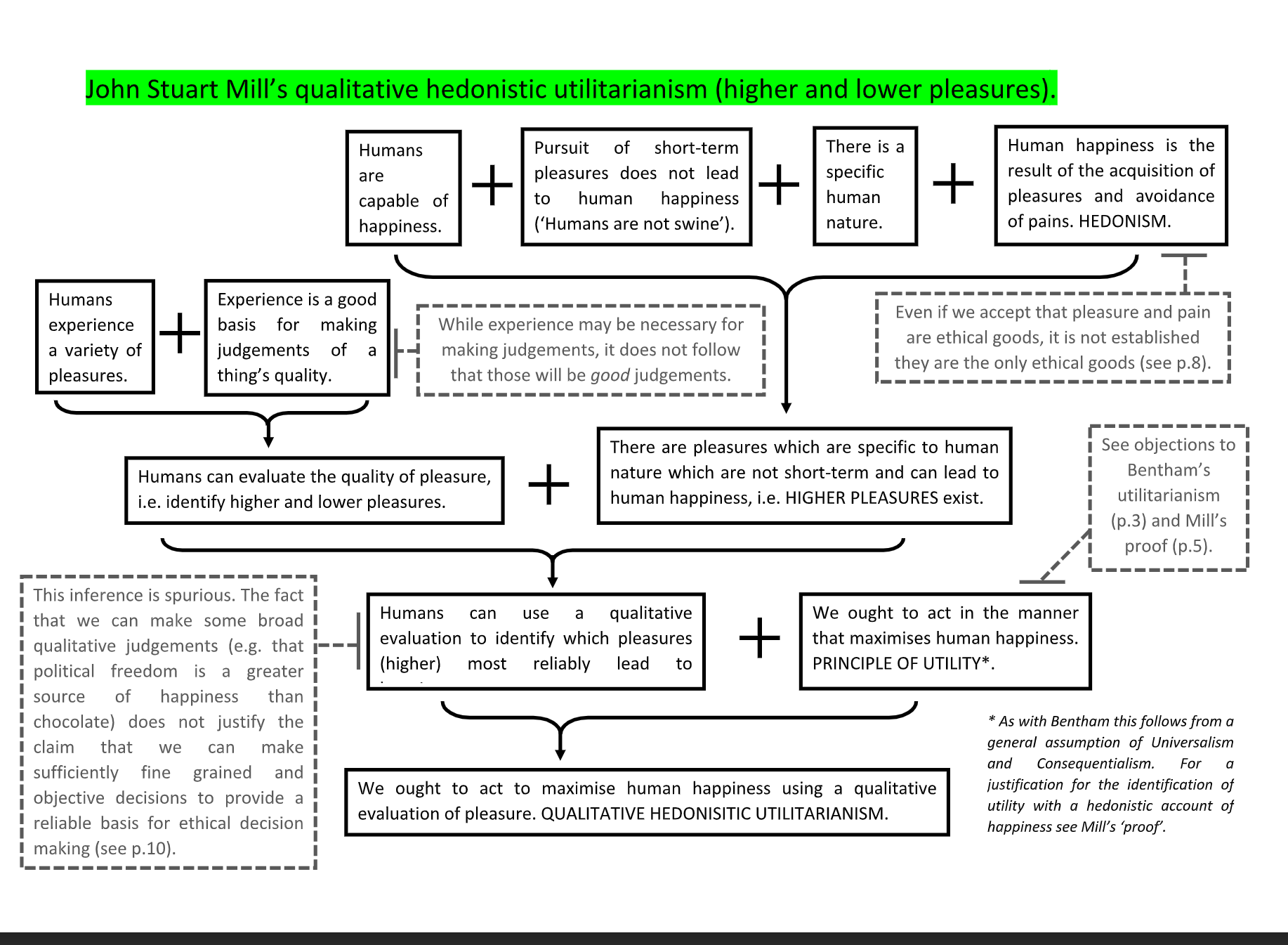
Mills proof
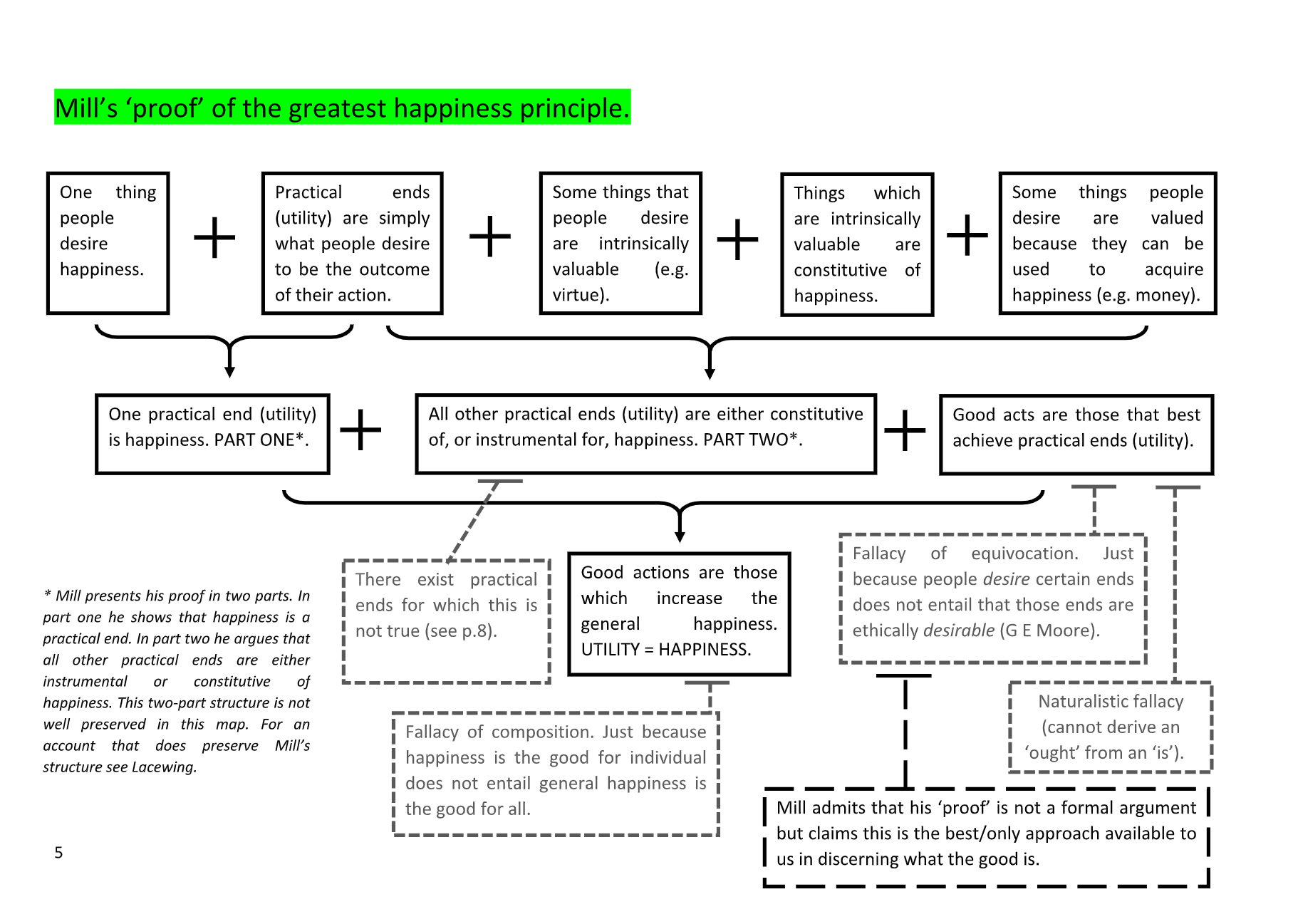
Preference Util
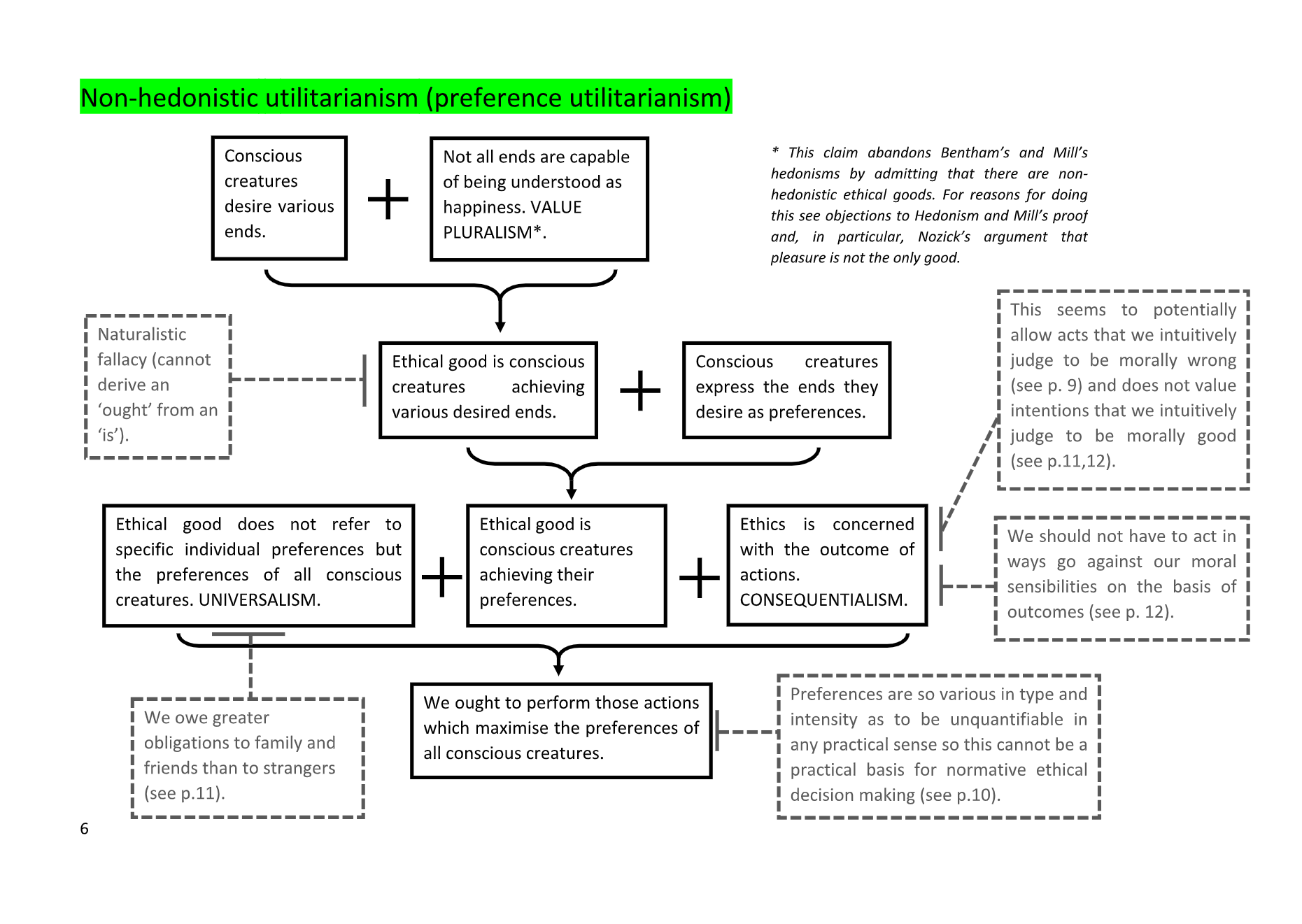
Rule Util
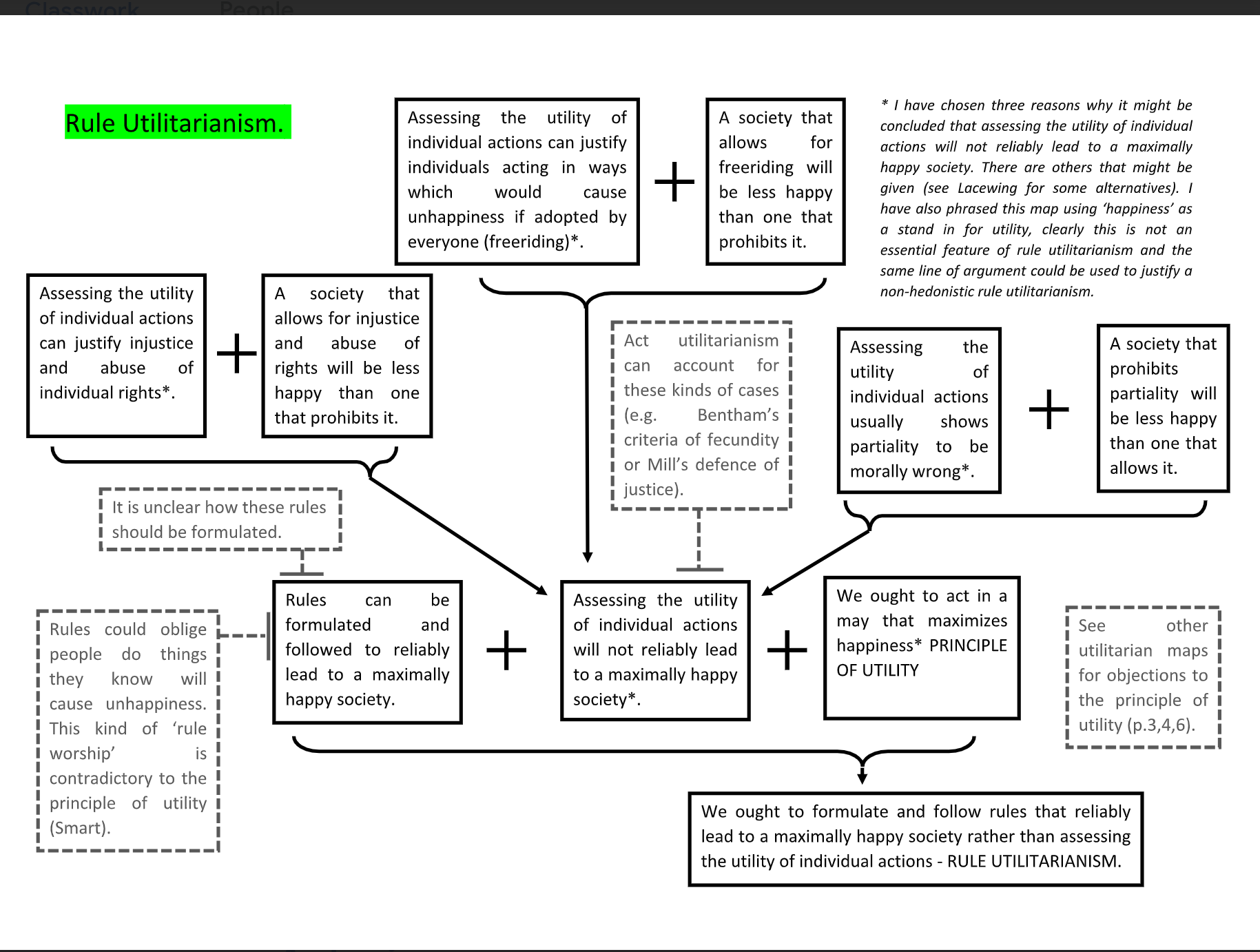
whether pleasure is the only Good
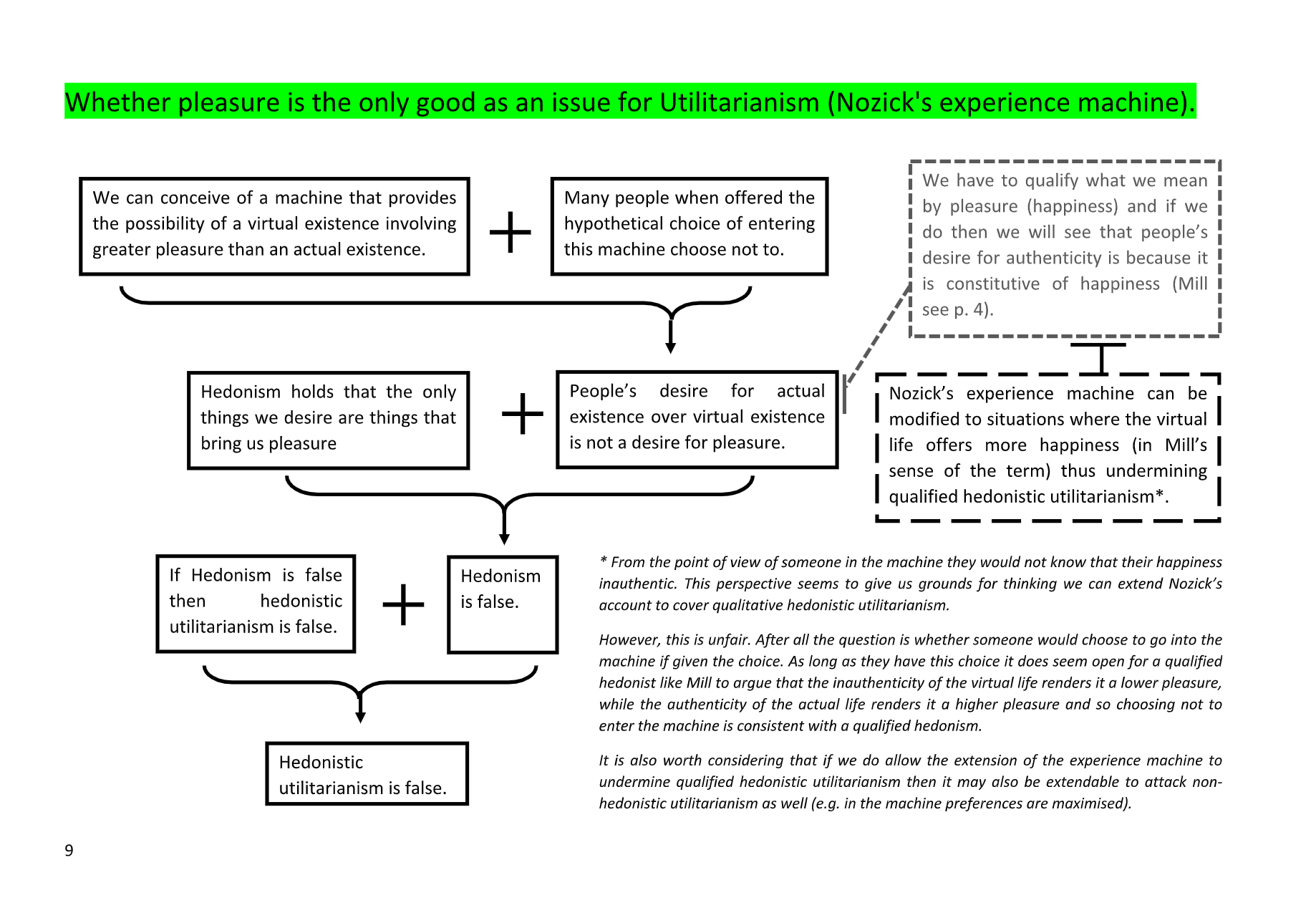
Tyranny of the majority
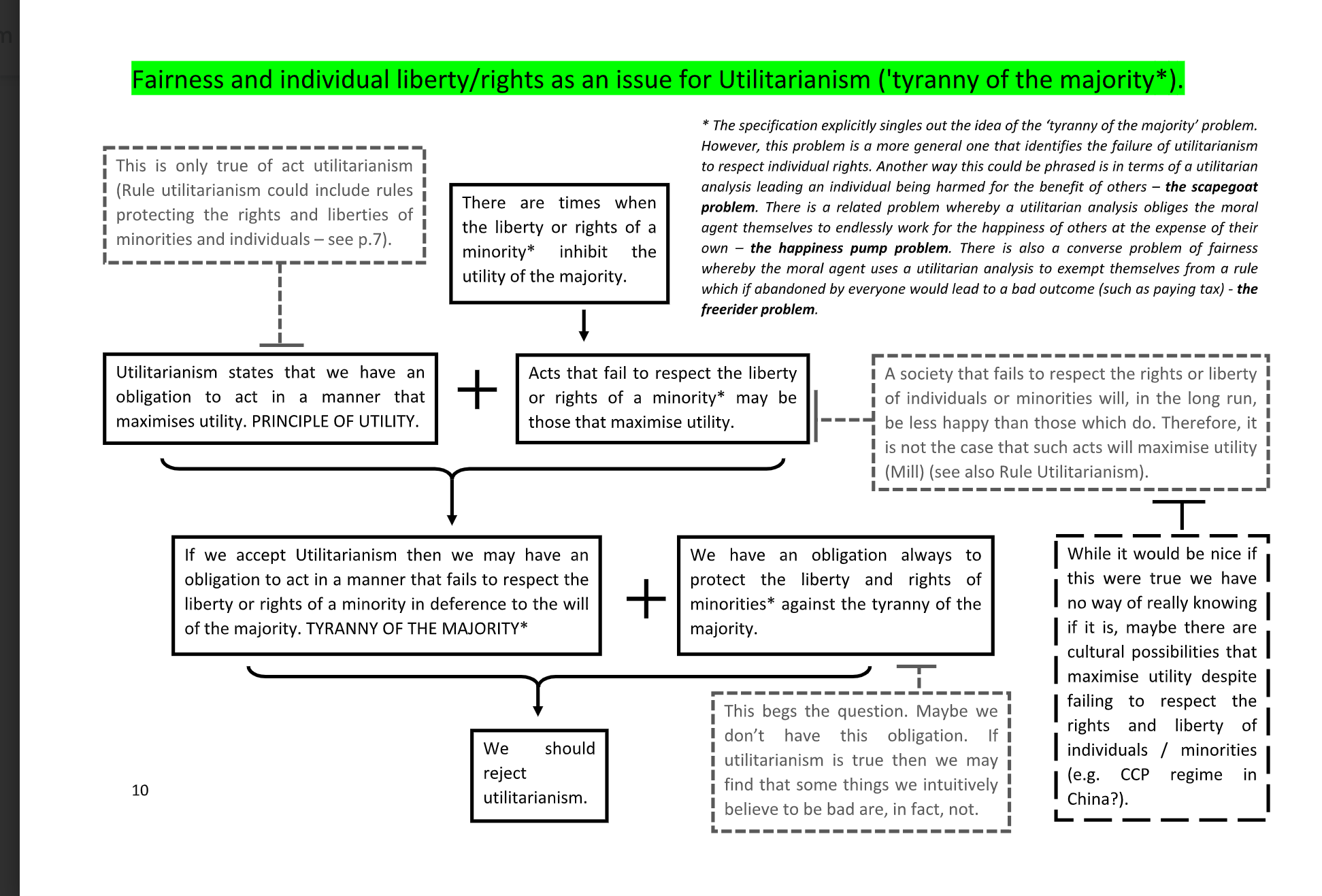
Utility is incalculable
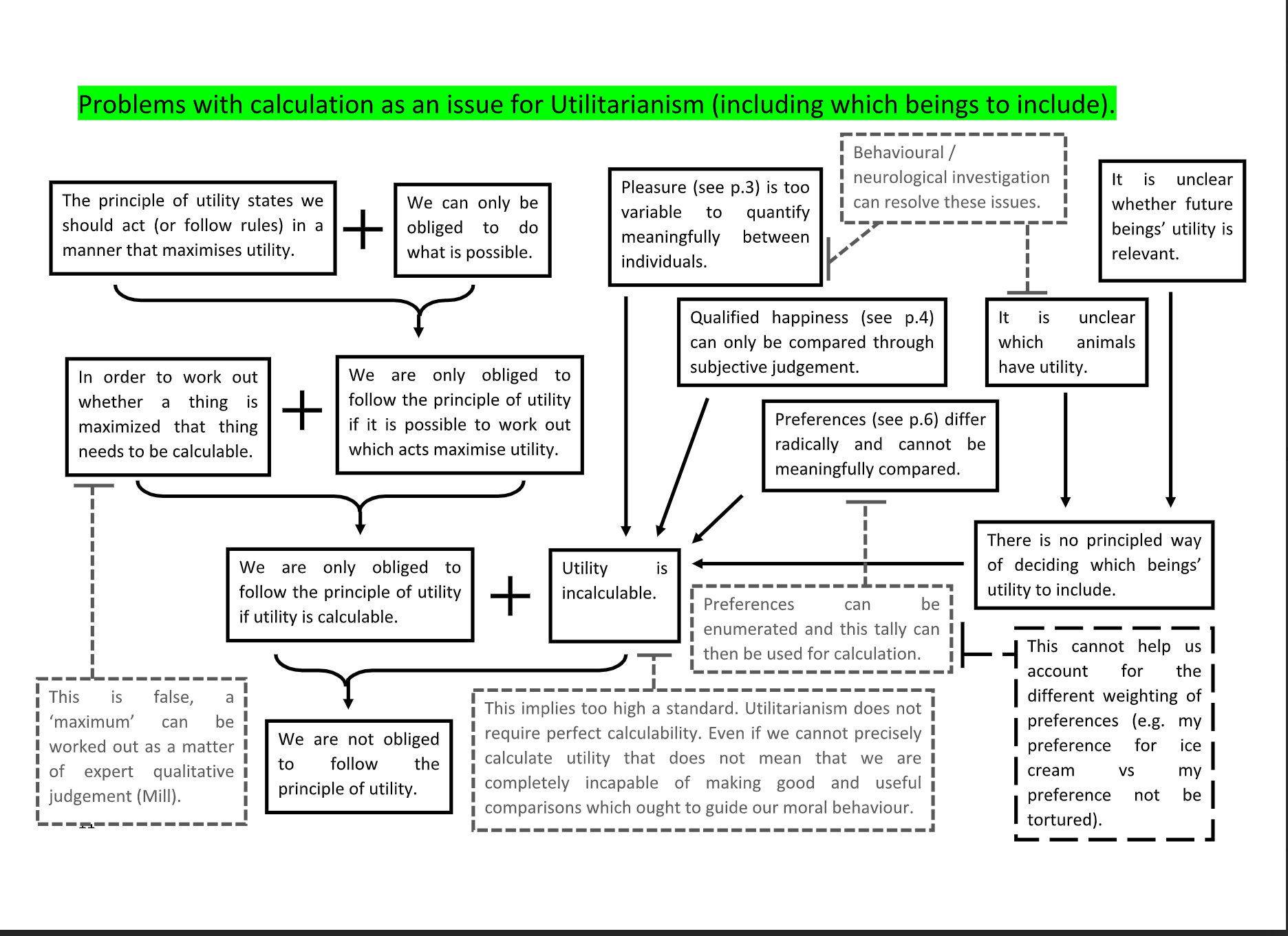
partiality objection
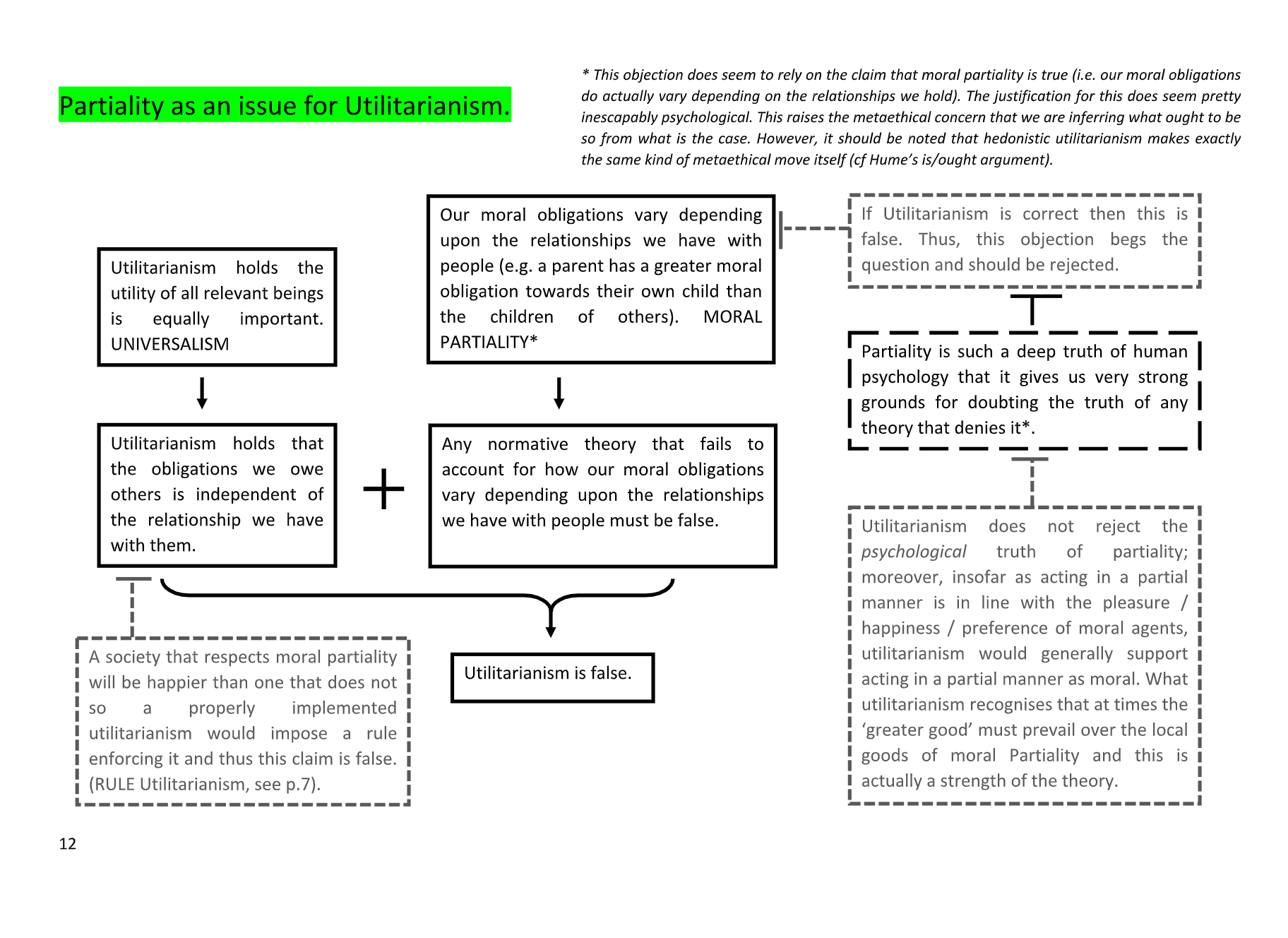
moral integrity
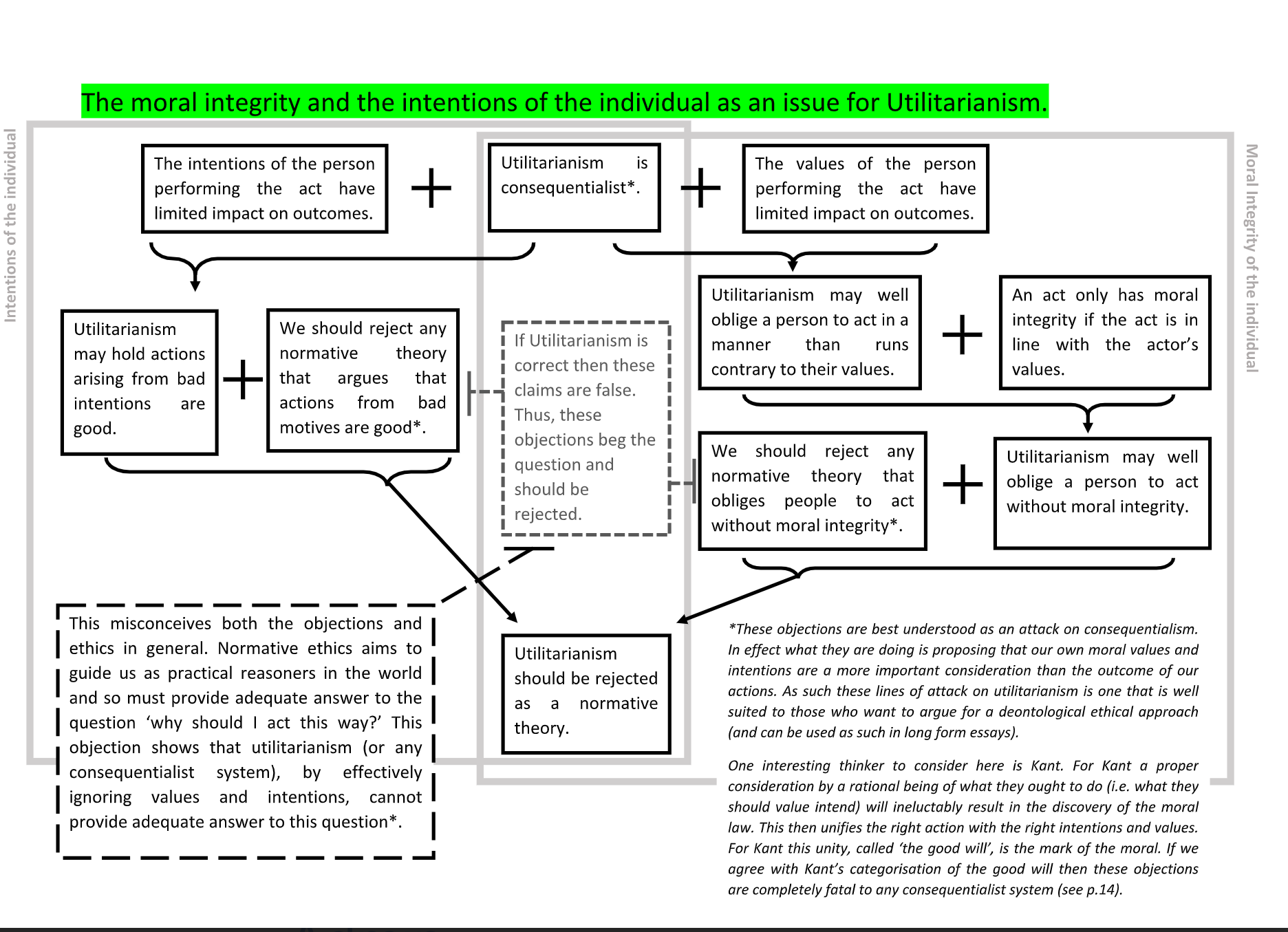
Kant - good iwll
The Good Will is the only thing that is good without qualification — it is good in itself, not because of what it produces.
Morality is based on intention (the will), not consequences — outcomes are morally irrelevant.
A moral action is one done from duty, not from emotion or for personal gain (like happiness).
Autonomous, rational beings can recognise moral duty through reason and are capable of acting morally.
To be moral, the will must treat moral goodness as an end in itself, not as a means to something else.
Therefore, we ought to act from the Good Will — choosing what is right simply because it is right.Kant's concept emphasizes that true morality arises from the intention behind actions, grounded in duty and reason, rather than their outcomes or emotional motivations.
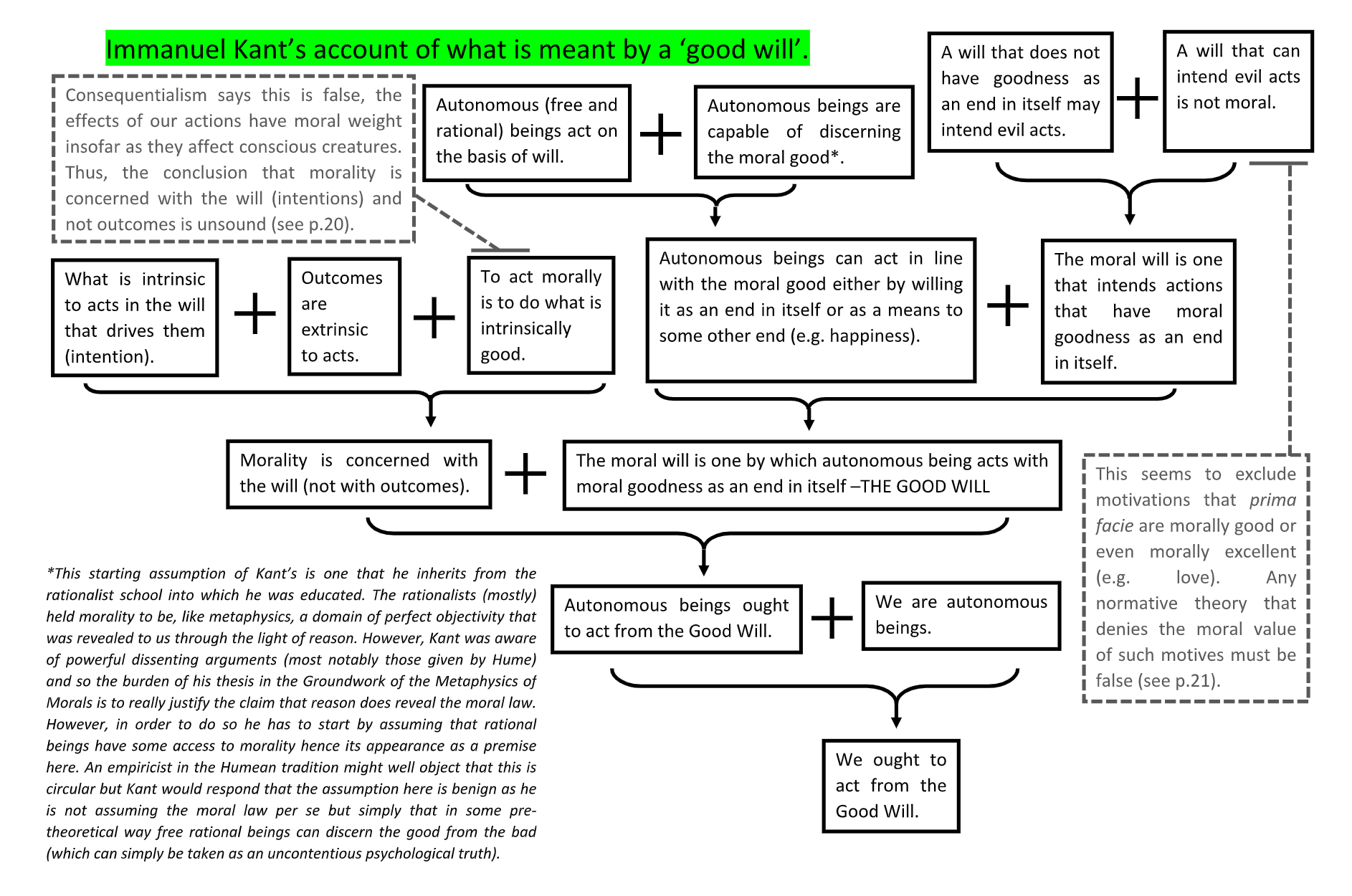
Kant on duty
Imperatives are commands that direct actions, and Kant distinguishes between two types: hypothetical and categorical. Hypothetical imperatives are conditional and depend on achieving a specific goal, following the structure "If P, then Q." For example, "If you want to get a driving licence, you ought to take driving lessons." These are not moral imperatives because they only hold if the goal exists. Categorical imperatives, on the other hand, are unconditional and apply irrespective of goals. For instance, "You ought to tell the truth" applies universally and does not depend on any external objective. Kant argues that morality derives from categorical imperatives because they are not contingent on personal desires and hold universally as moral laws.
Kant's deontological ethical theory states that morality in an action is derived from duty. However, he distinguishes between acting in accordance with duty and acting out of duty. Acting in accordance with duty means performing actions that align with the categorical imperative but are not motivated by the Good Will. For example, a shopkeeper charging fair prices solely to retain customers acts in accordance with duty but not out of duty, as their motive is self-interest. Acting out of duty, however, means performing an action both in line with the categorical imperative and motivated by Good Will. For instance, a shopkeeper charging fair prices because they recognize a moral duty to do so acts out of duty. Kant argues that only actions performed out of duty have true moral worth, as they reflect adherence to the moral law for its own sake.
formualting the catgeroial imperiavte
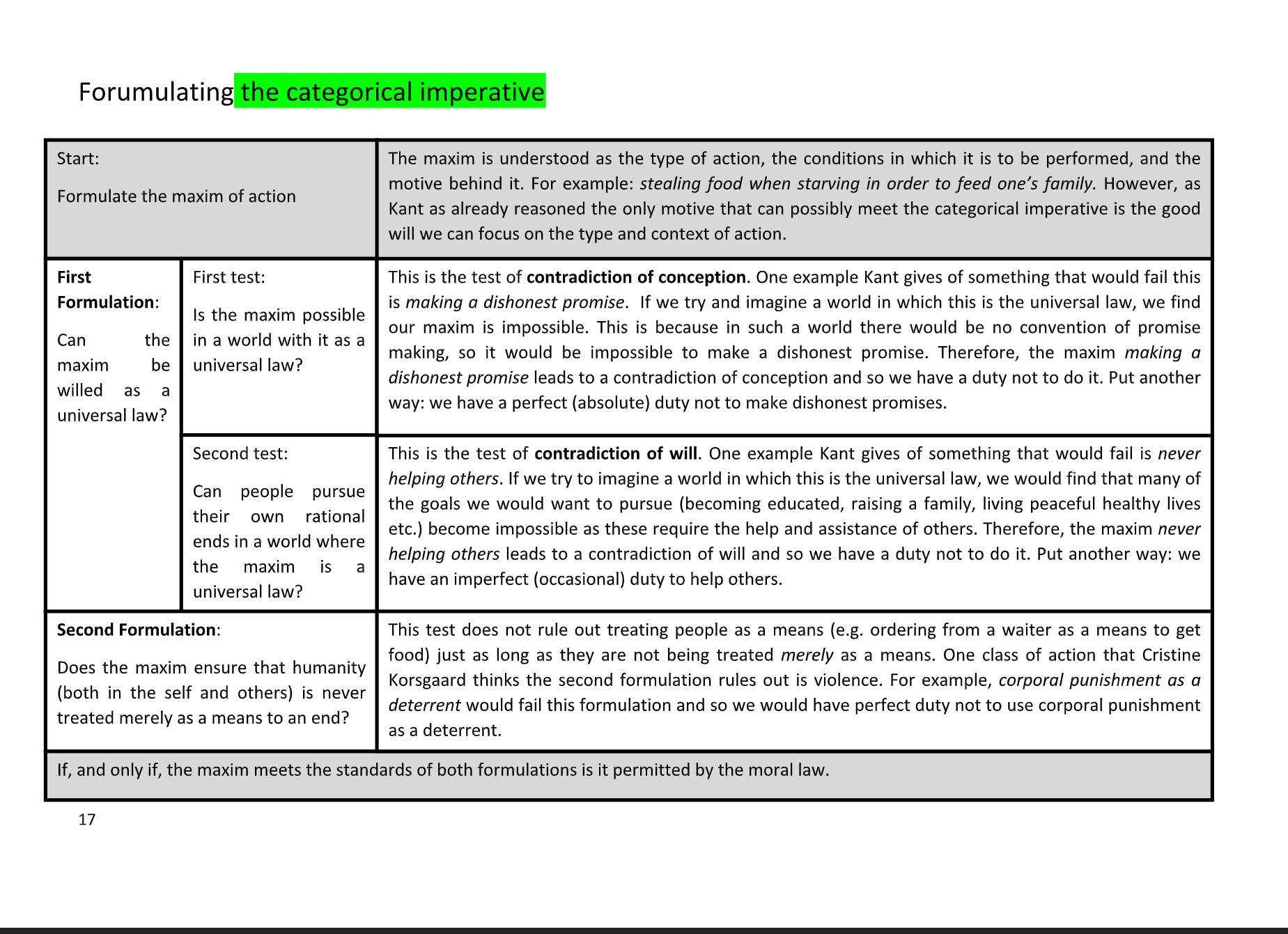
compeitng and calshing duties
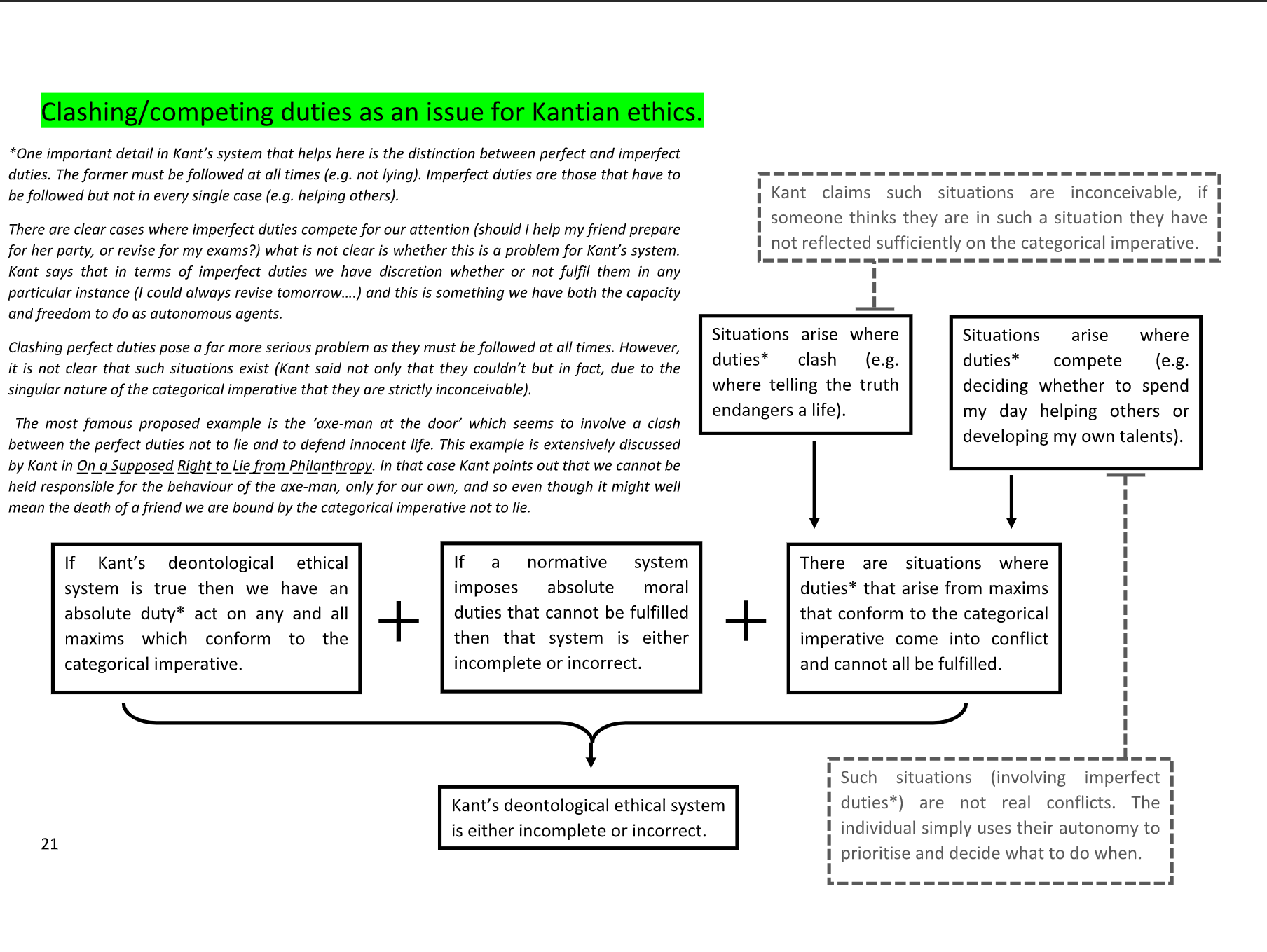
not all uniersalisbael maxims are moral/ vice versa
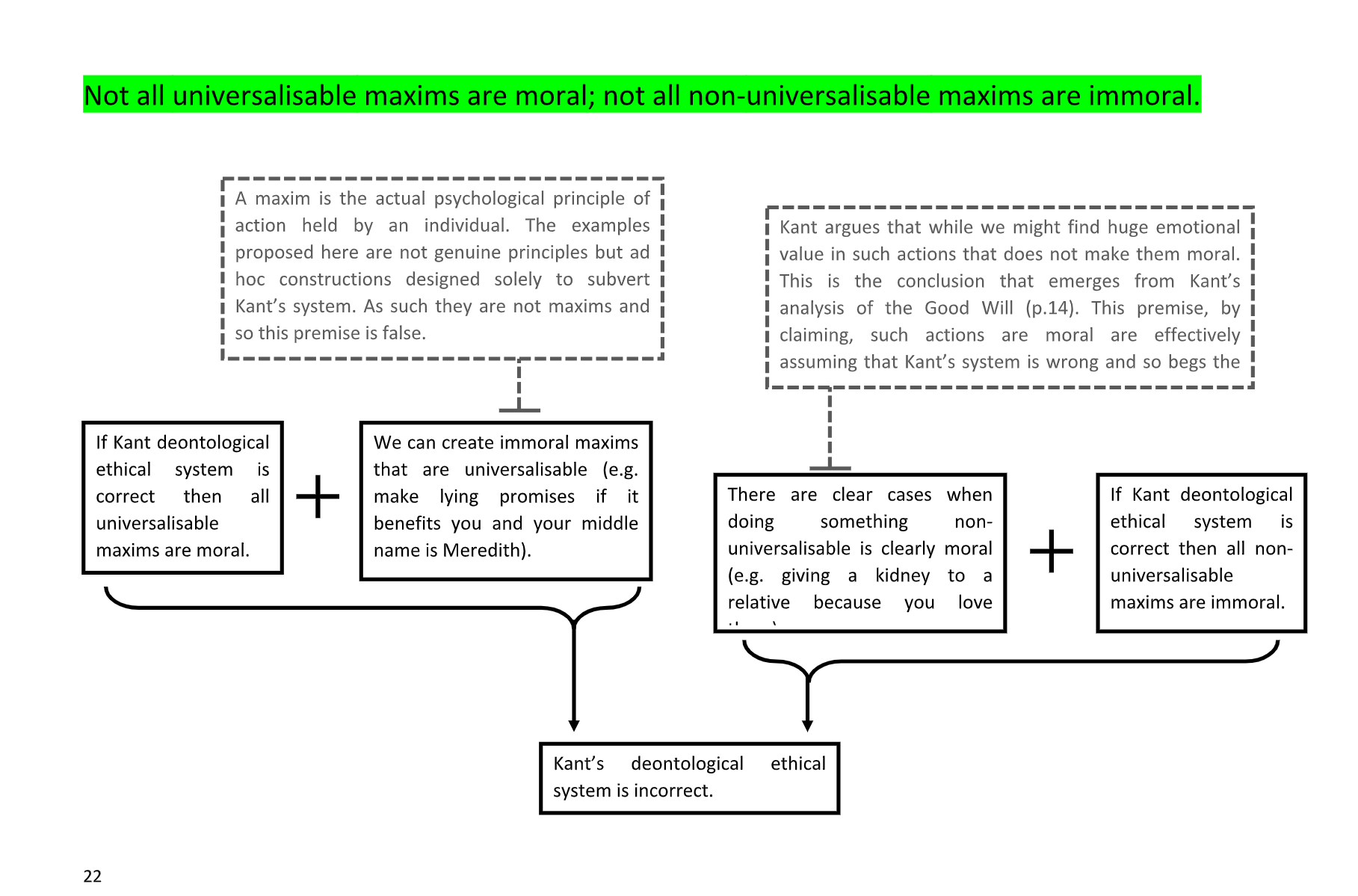
kant is a consequnetilst
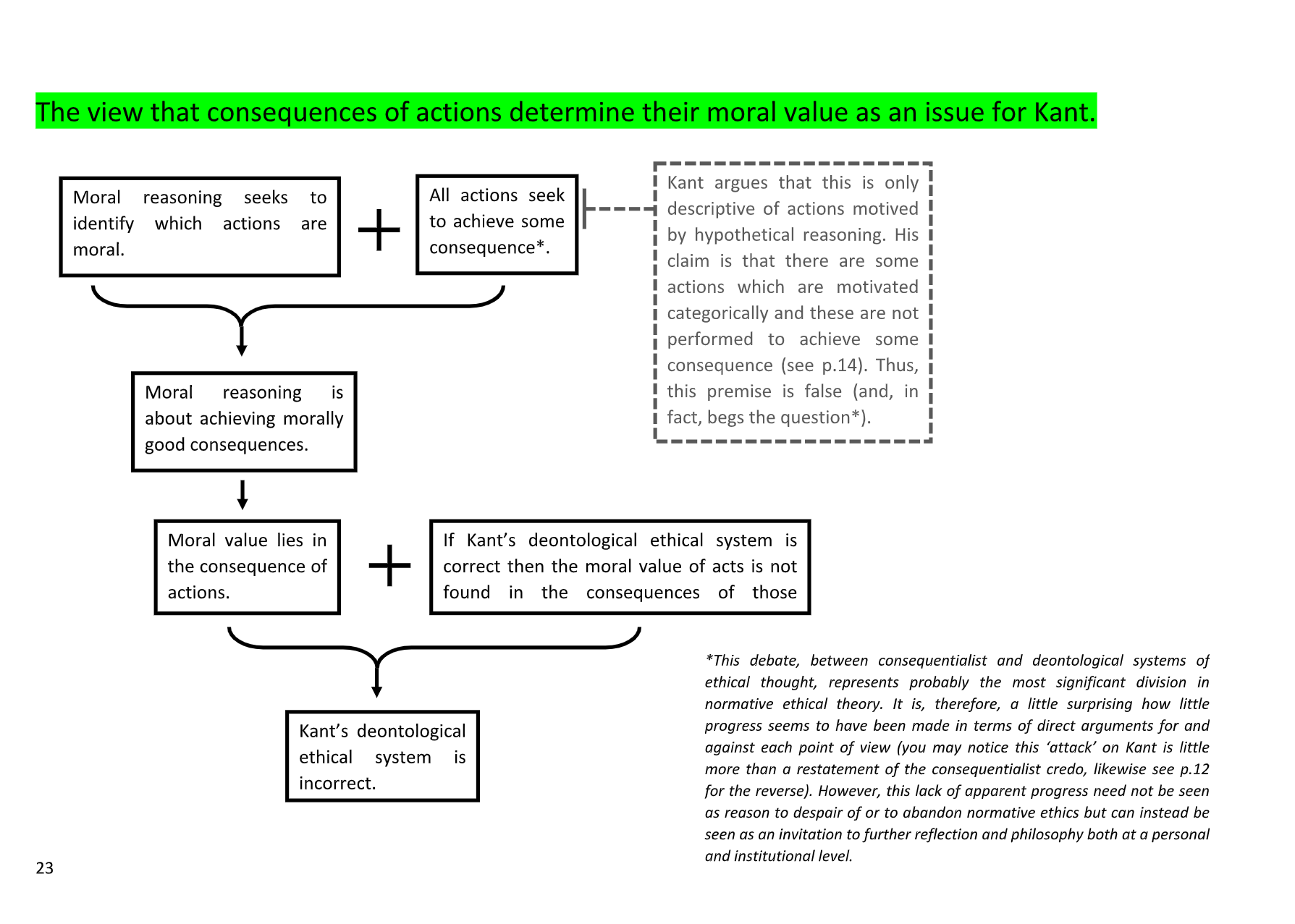
Kant ignored the value of motves
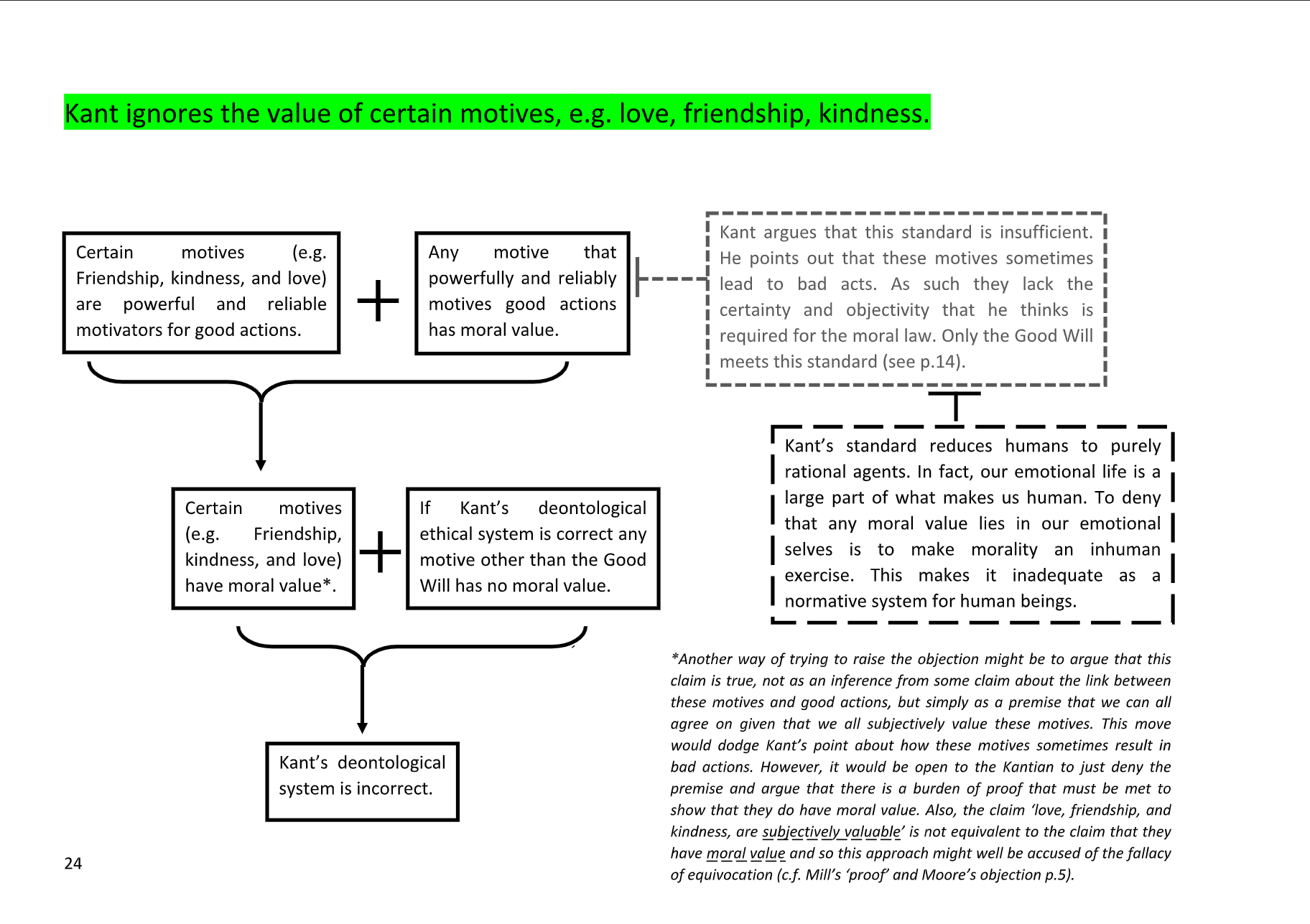
Foots objeciton
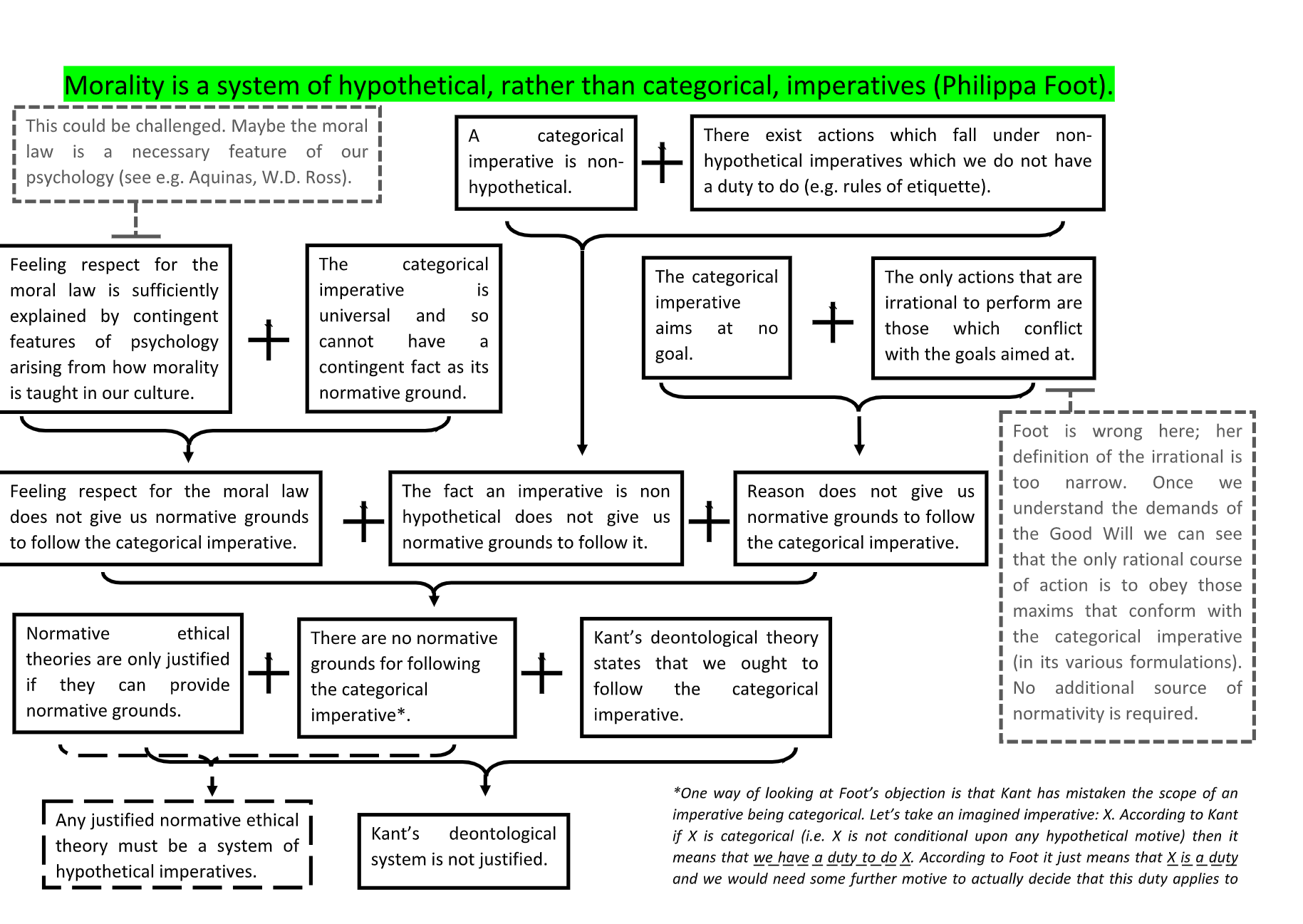
Moral naturalism
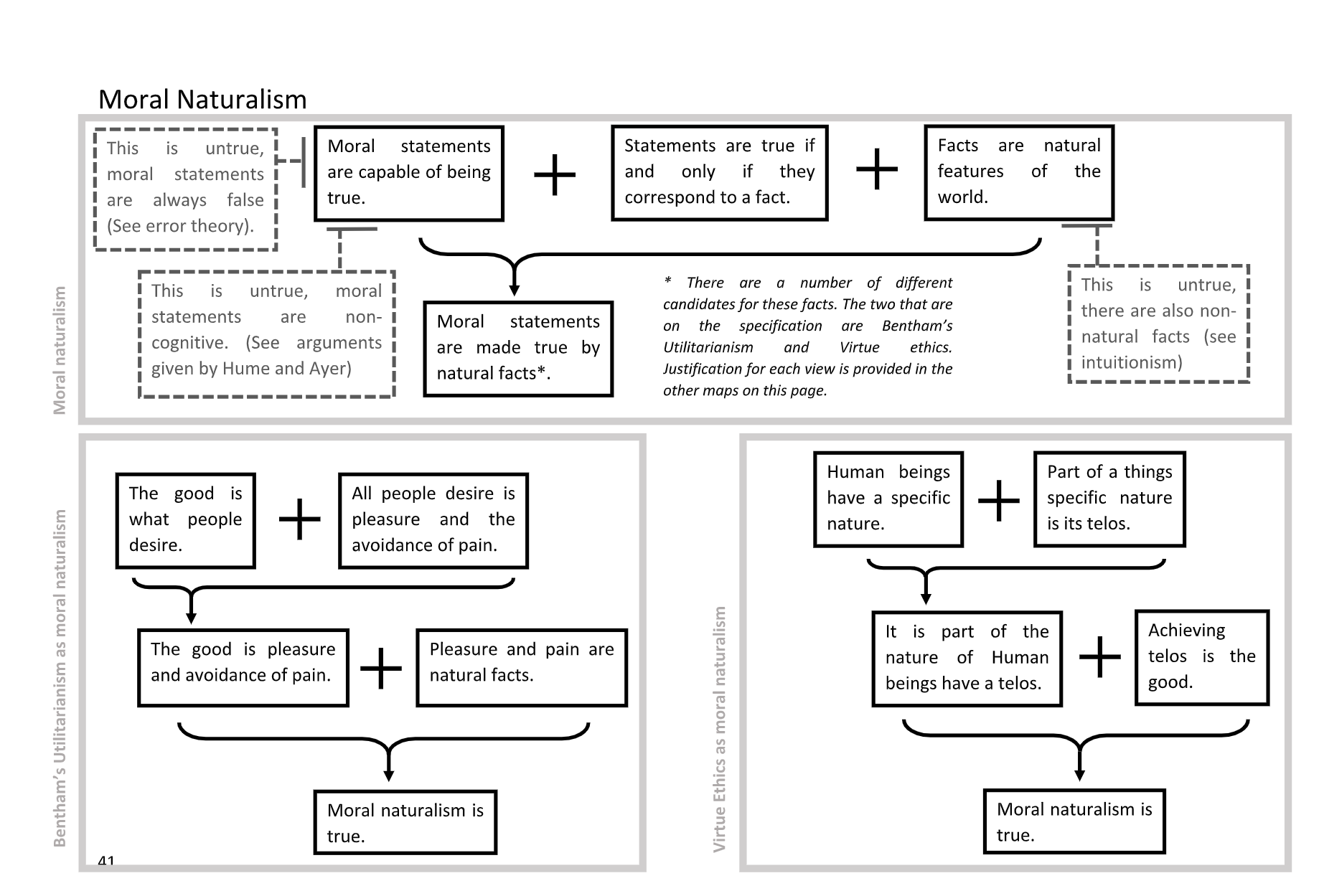
Moral non-naturalism
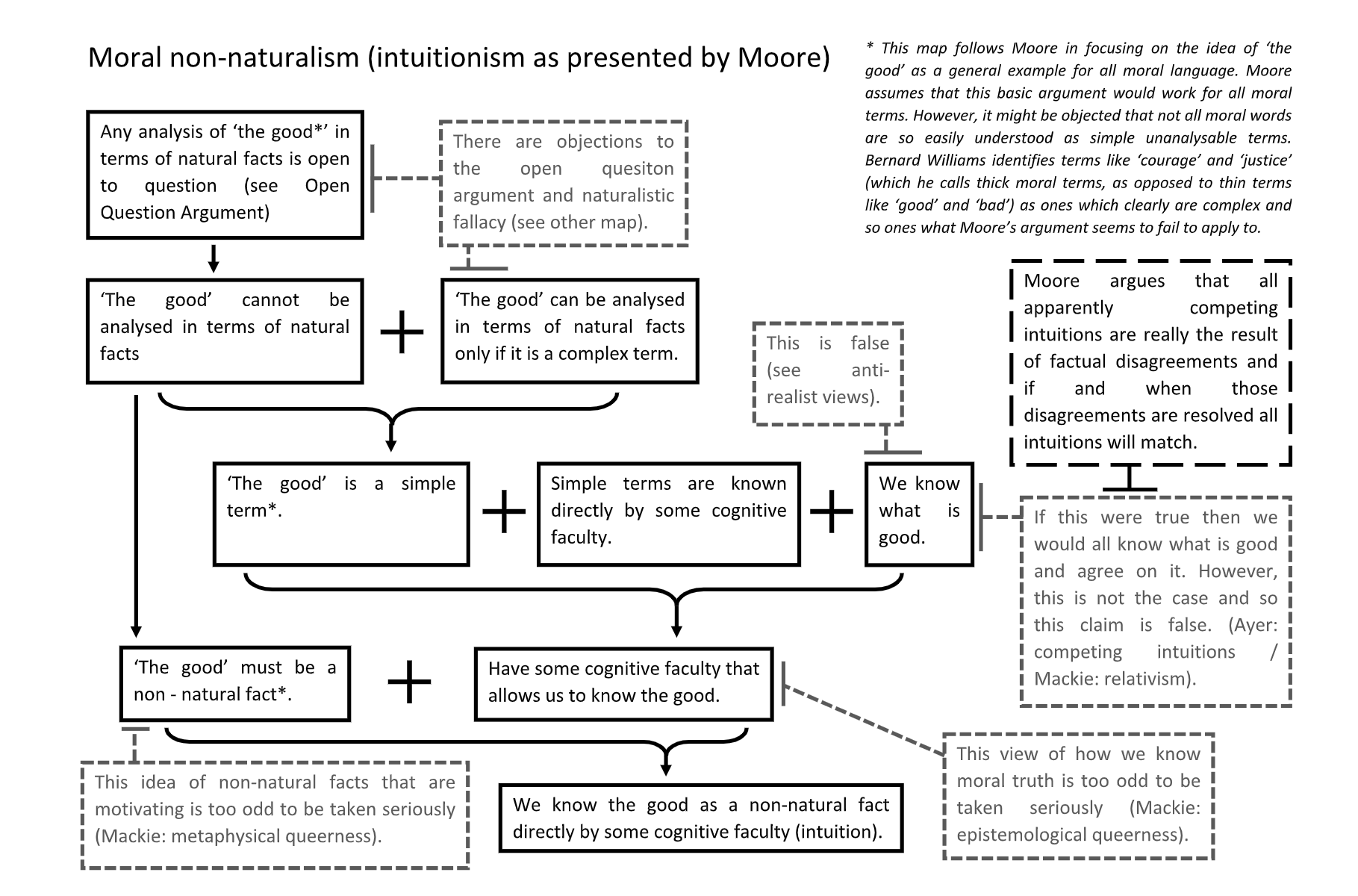
Moore open question
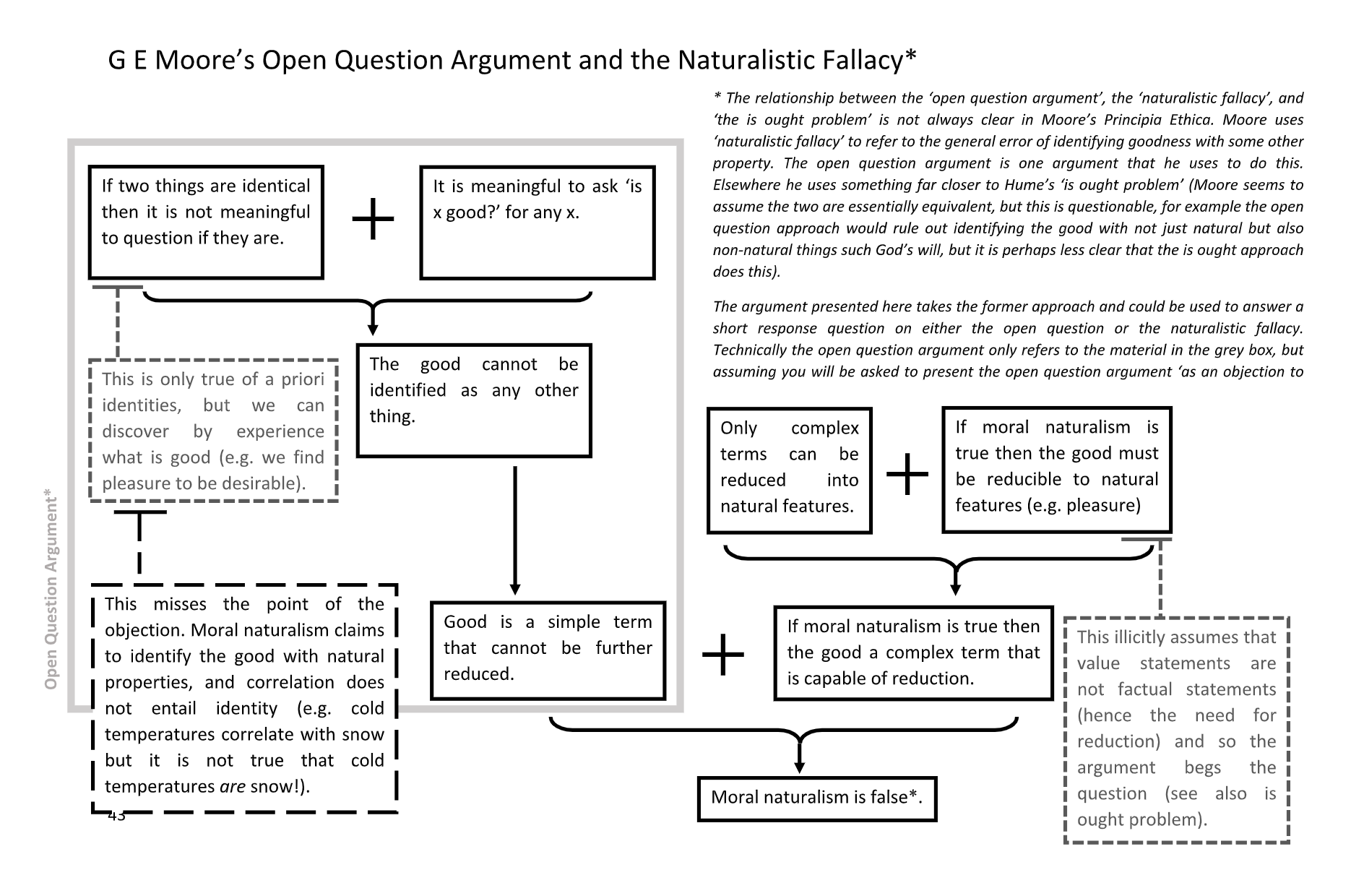
Humes fork as an issue
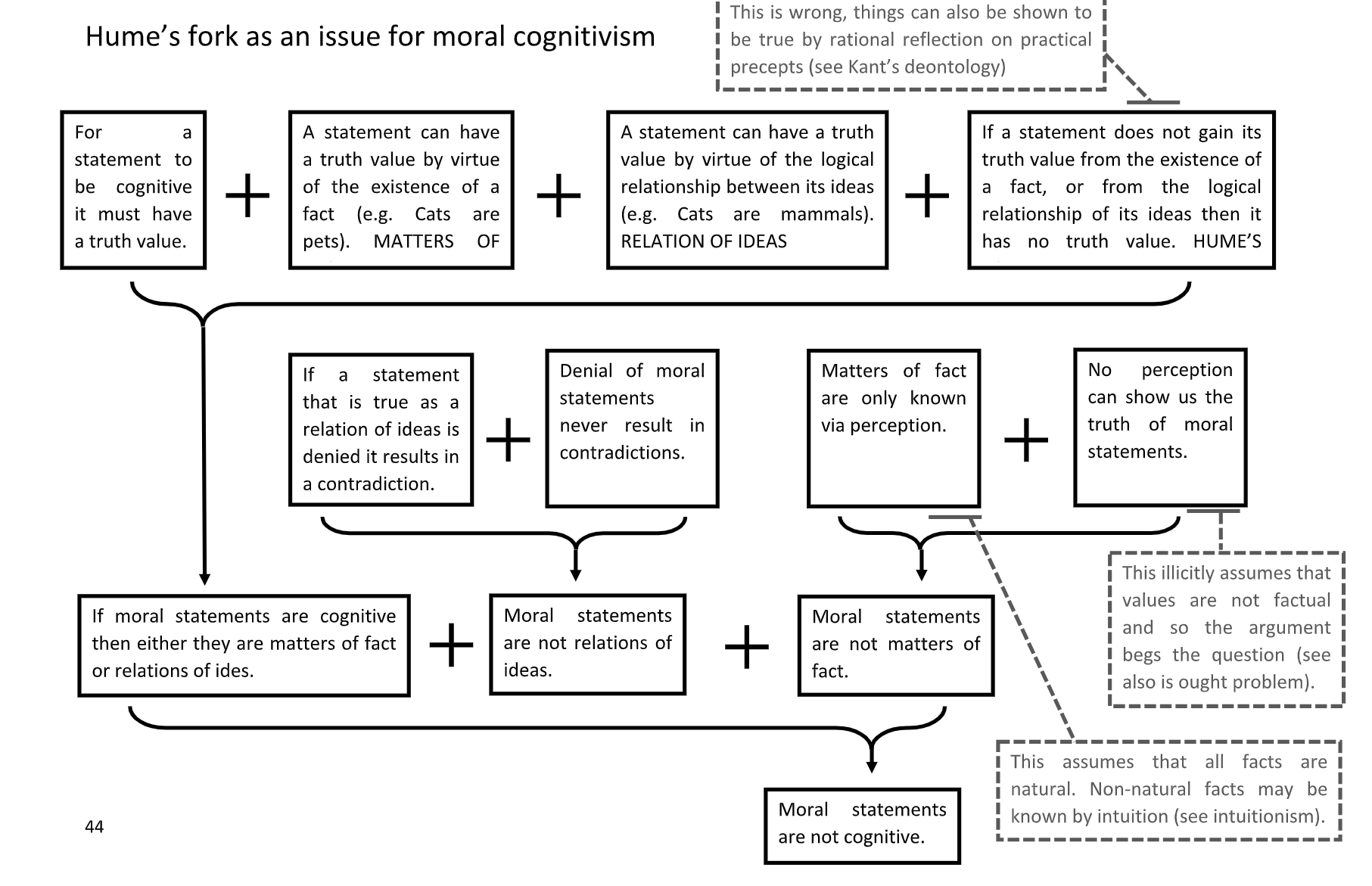
Verificaiton principle as an issue
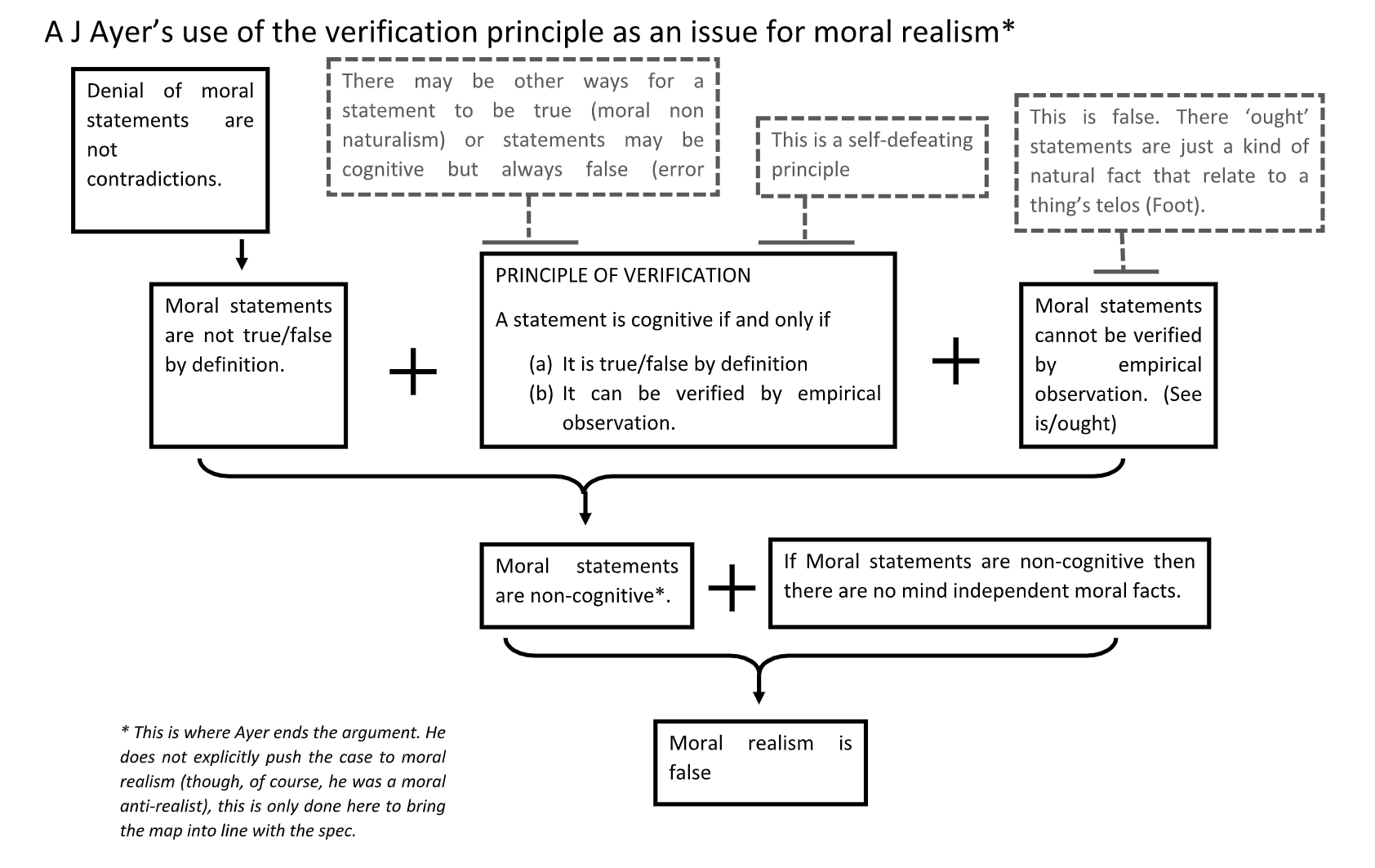
Hume- moral judgemtn cannot be beleifs
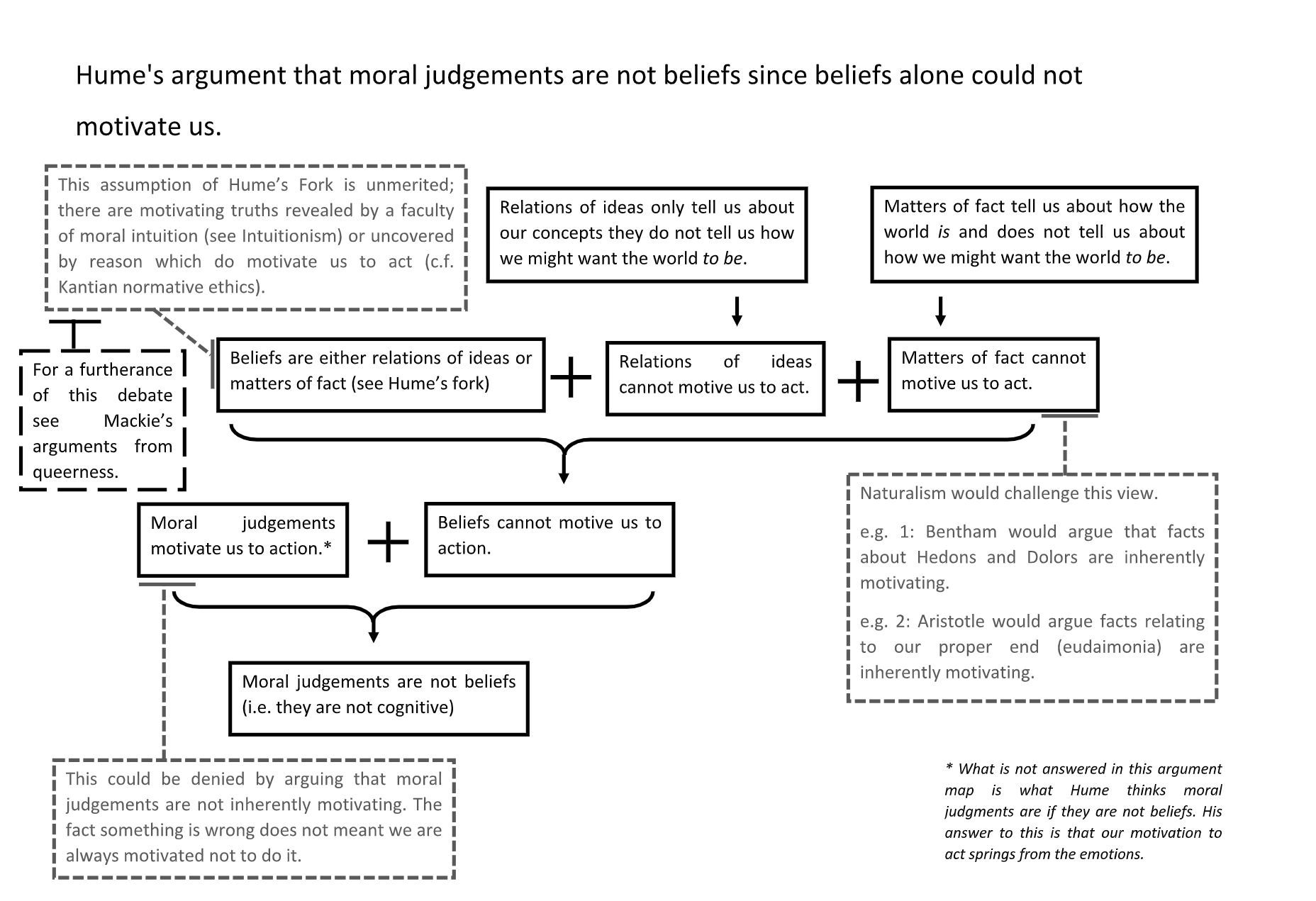
Hume- is ought gap
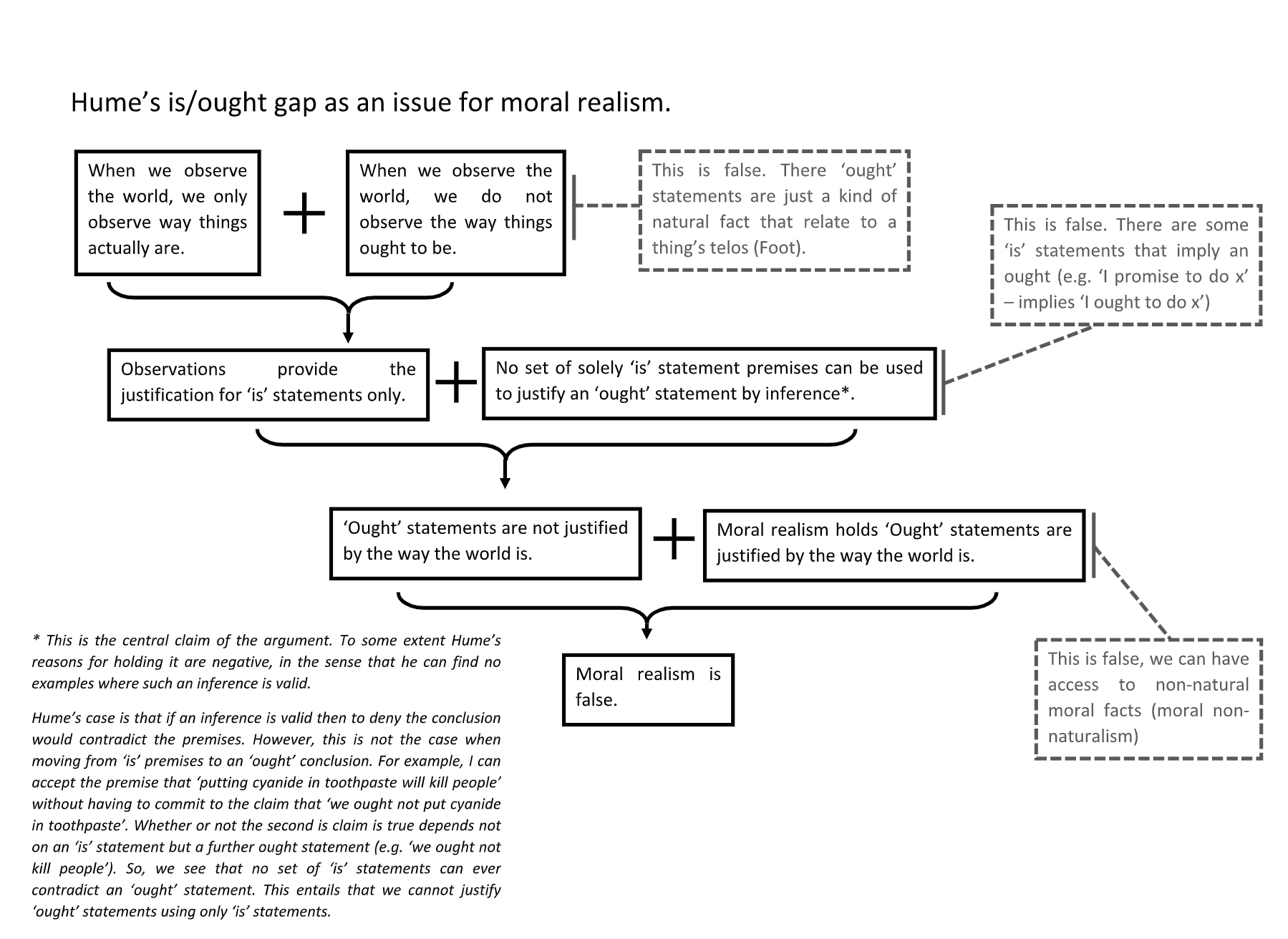
Mackies argument for relativt
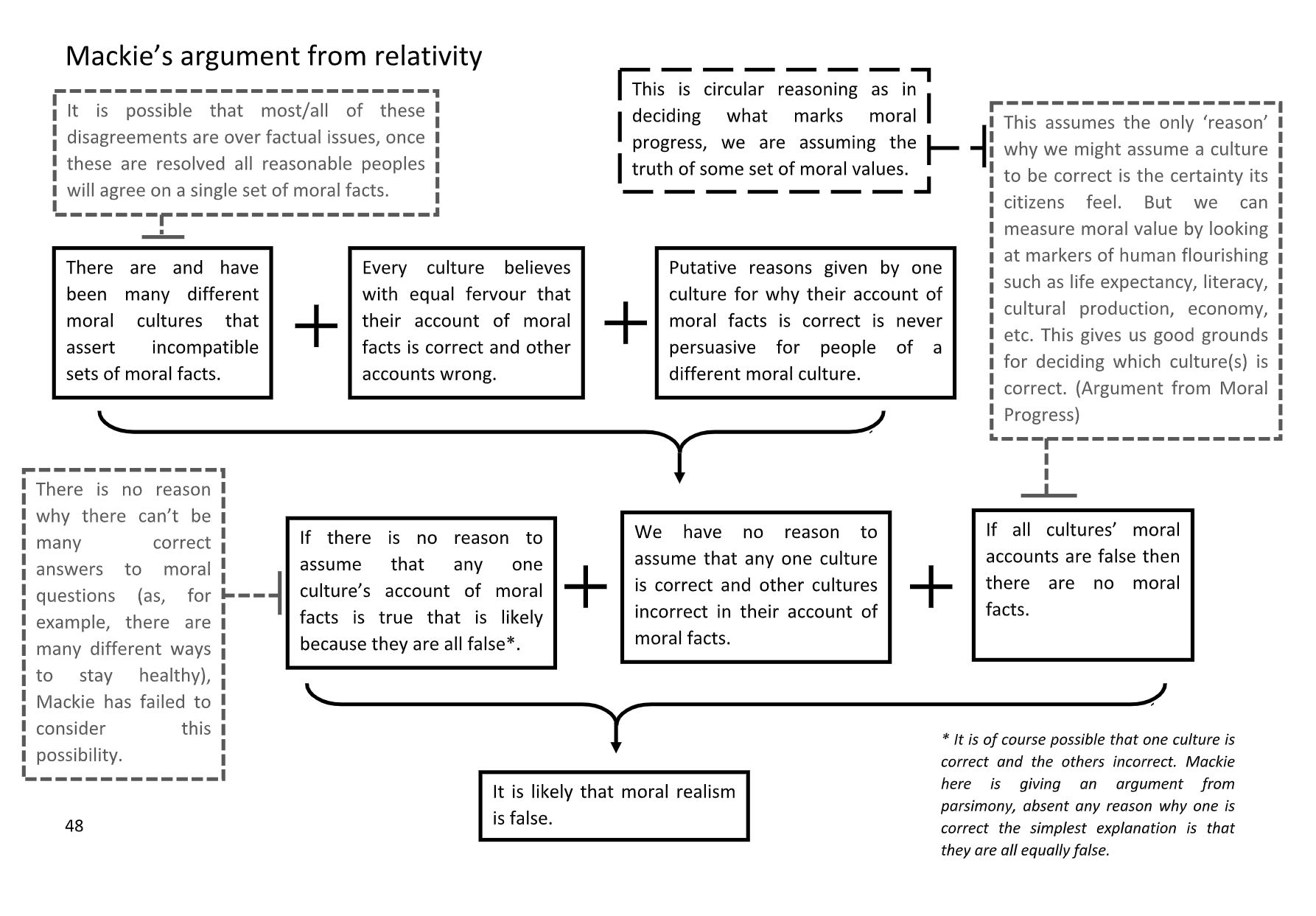
Makcies argument EQ
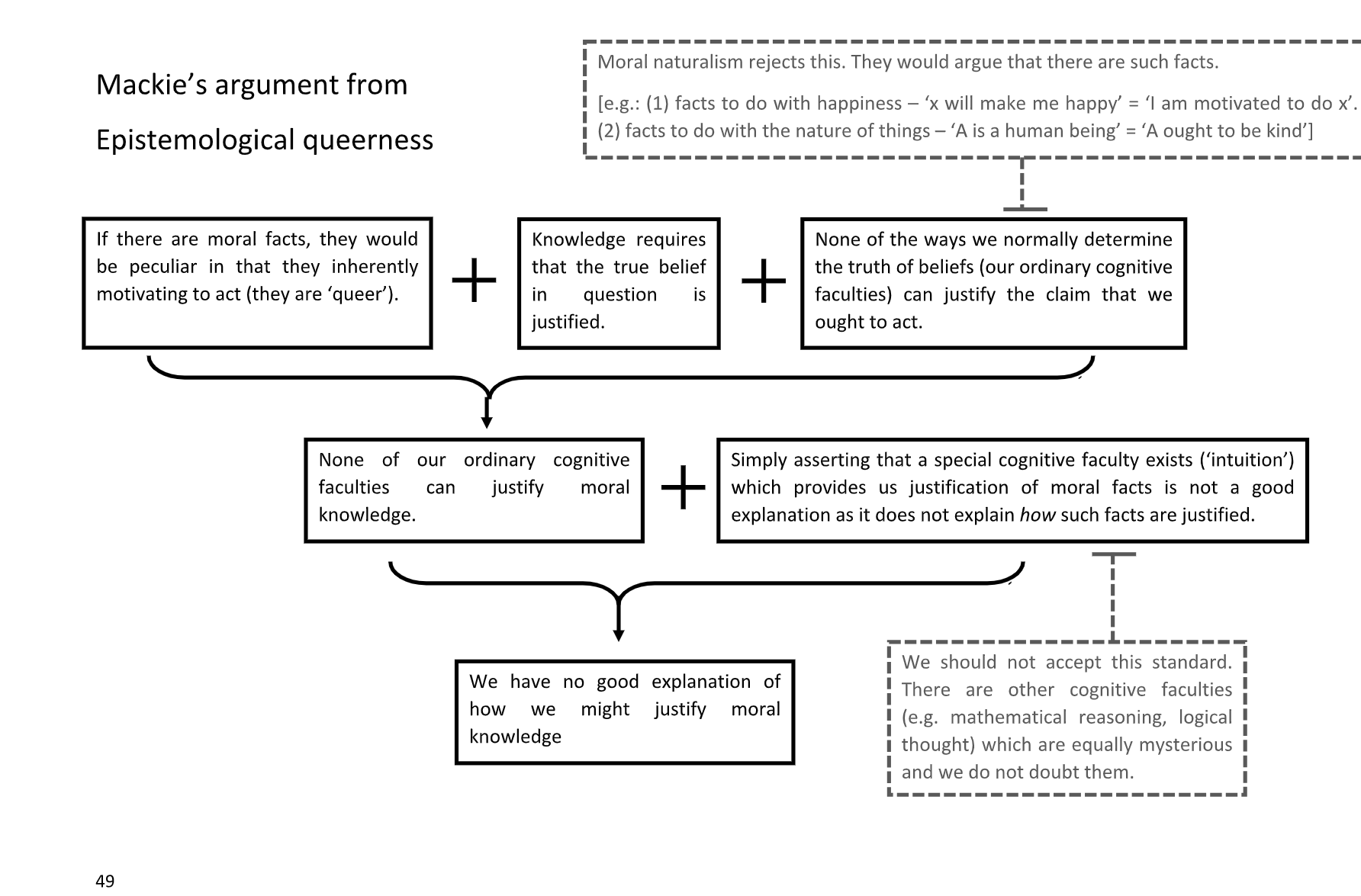
Mackies argument MQ
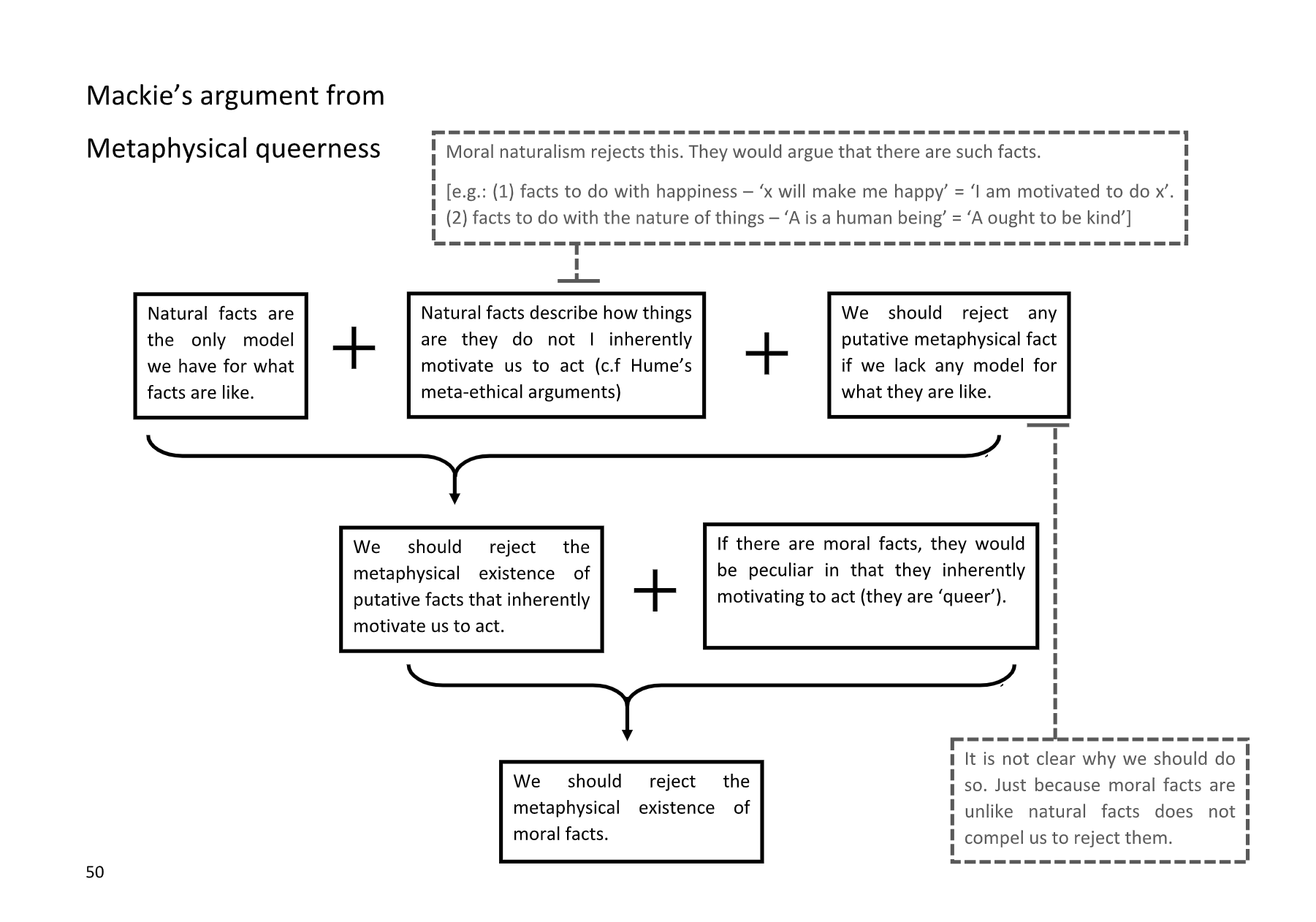
Emotivism
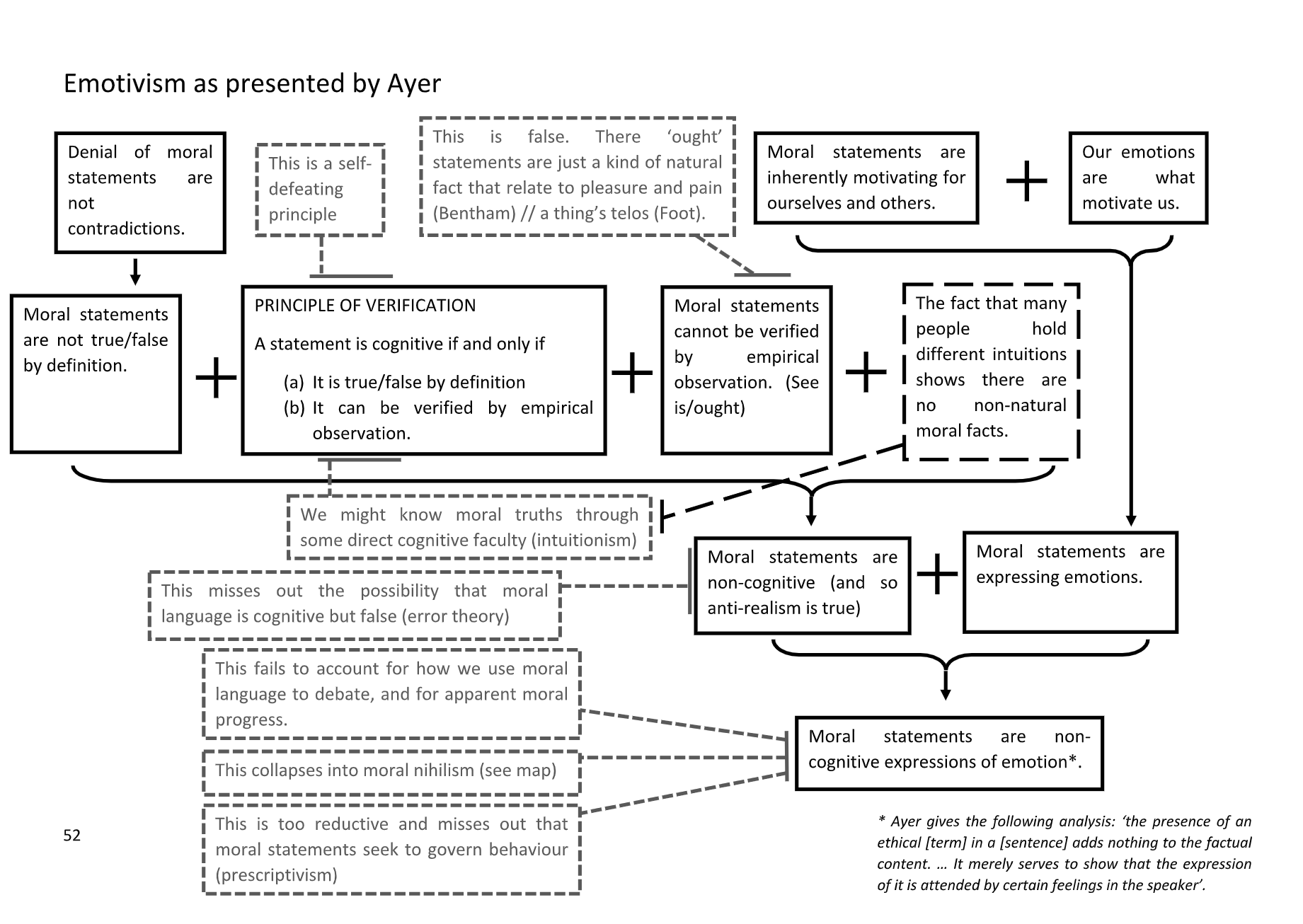
perscpritivsm
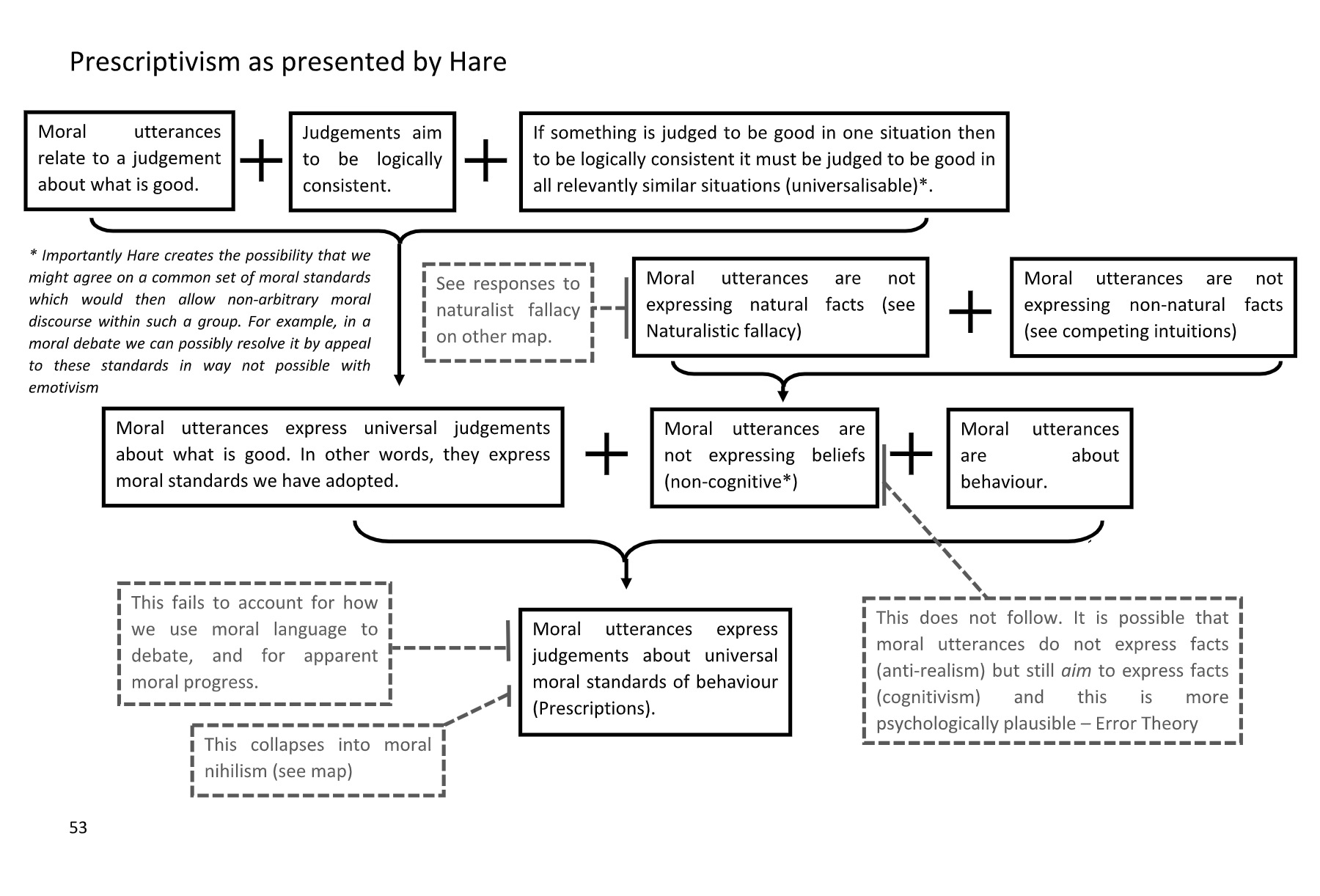
Mackies error theory
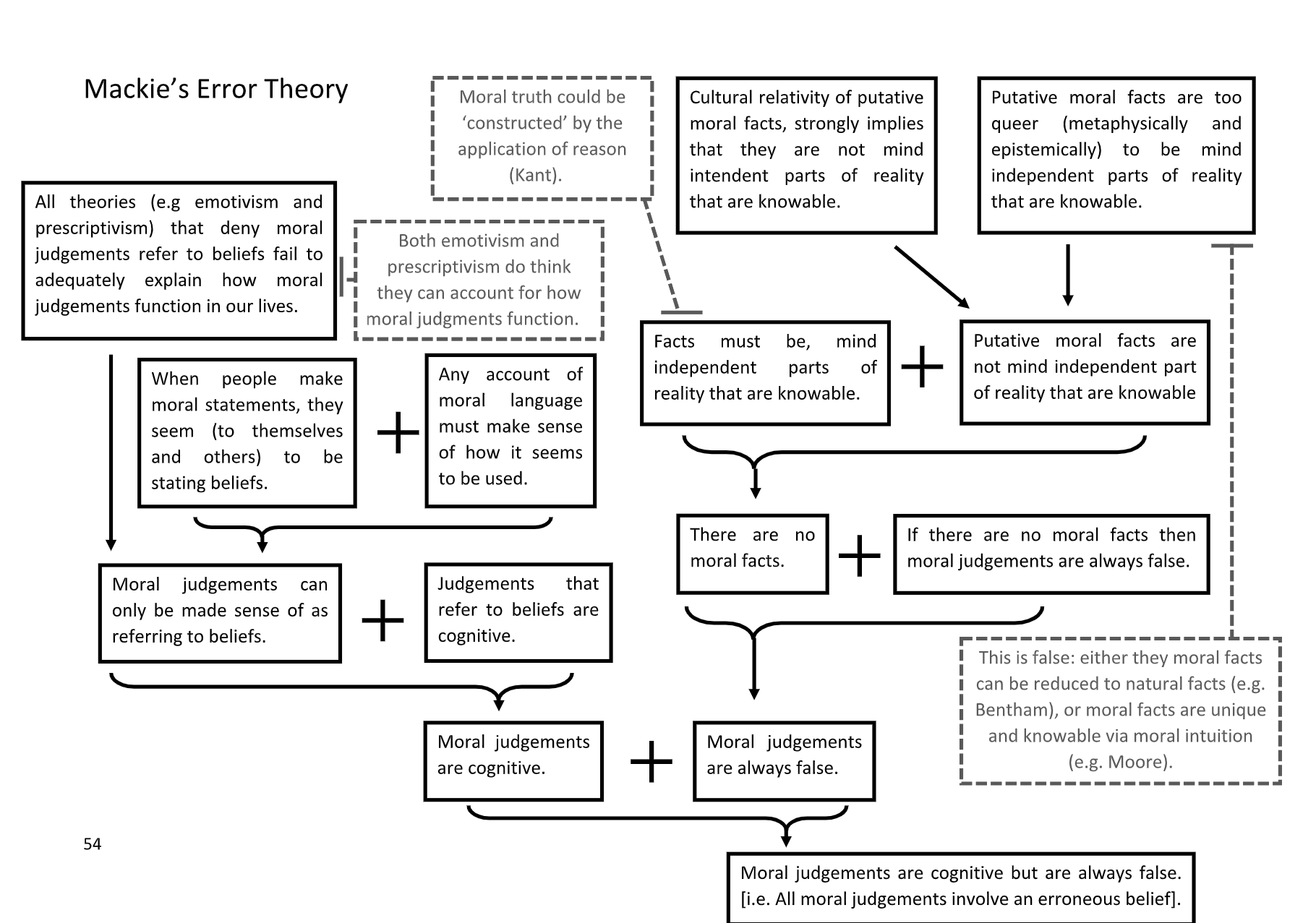
moral progress as an issue
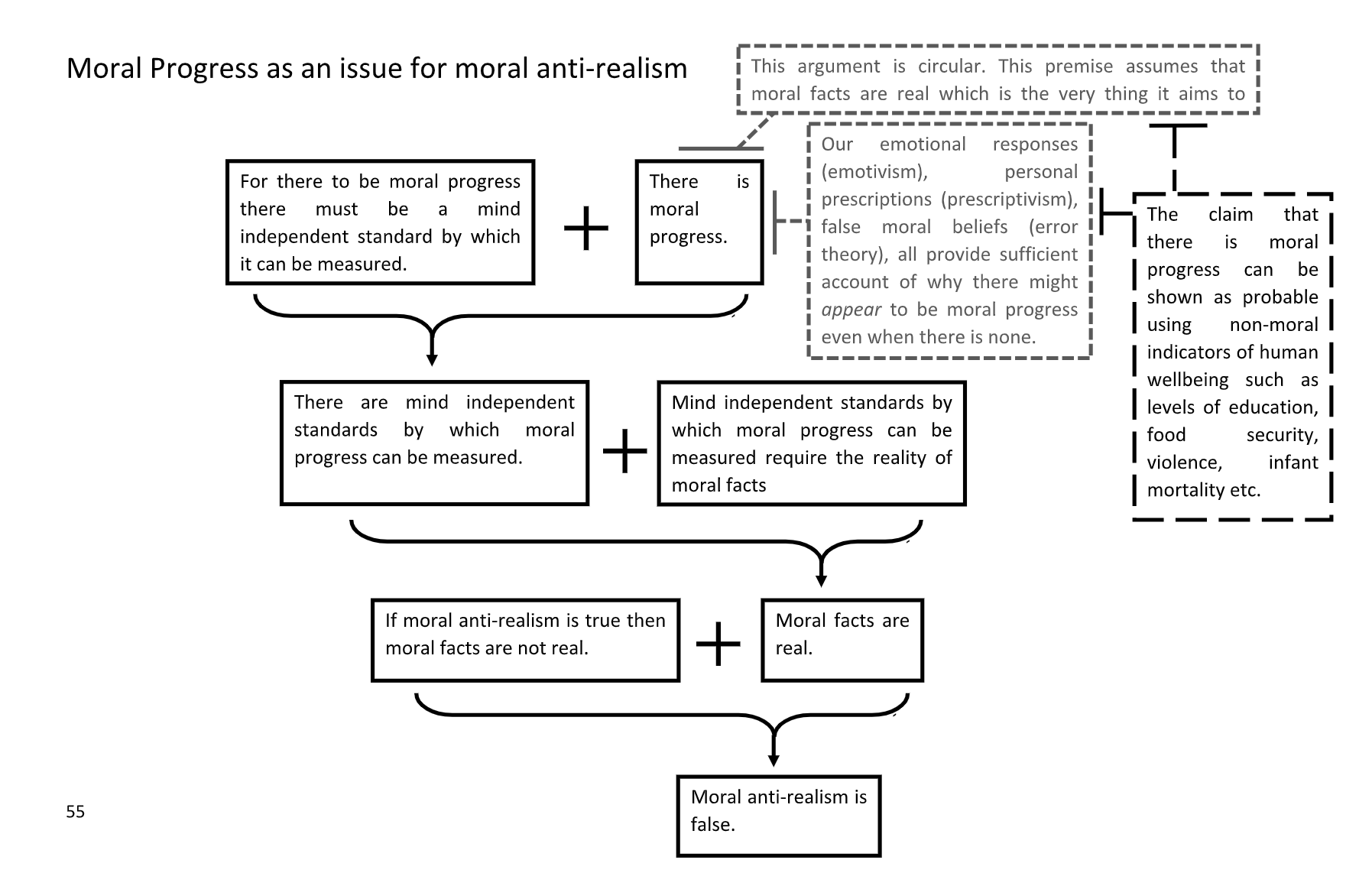
Moral anti-realism - moral nihilism
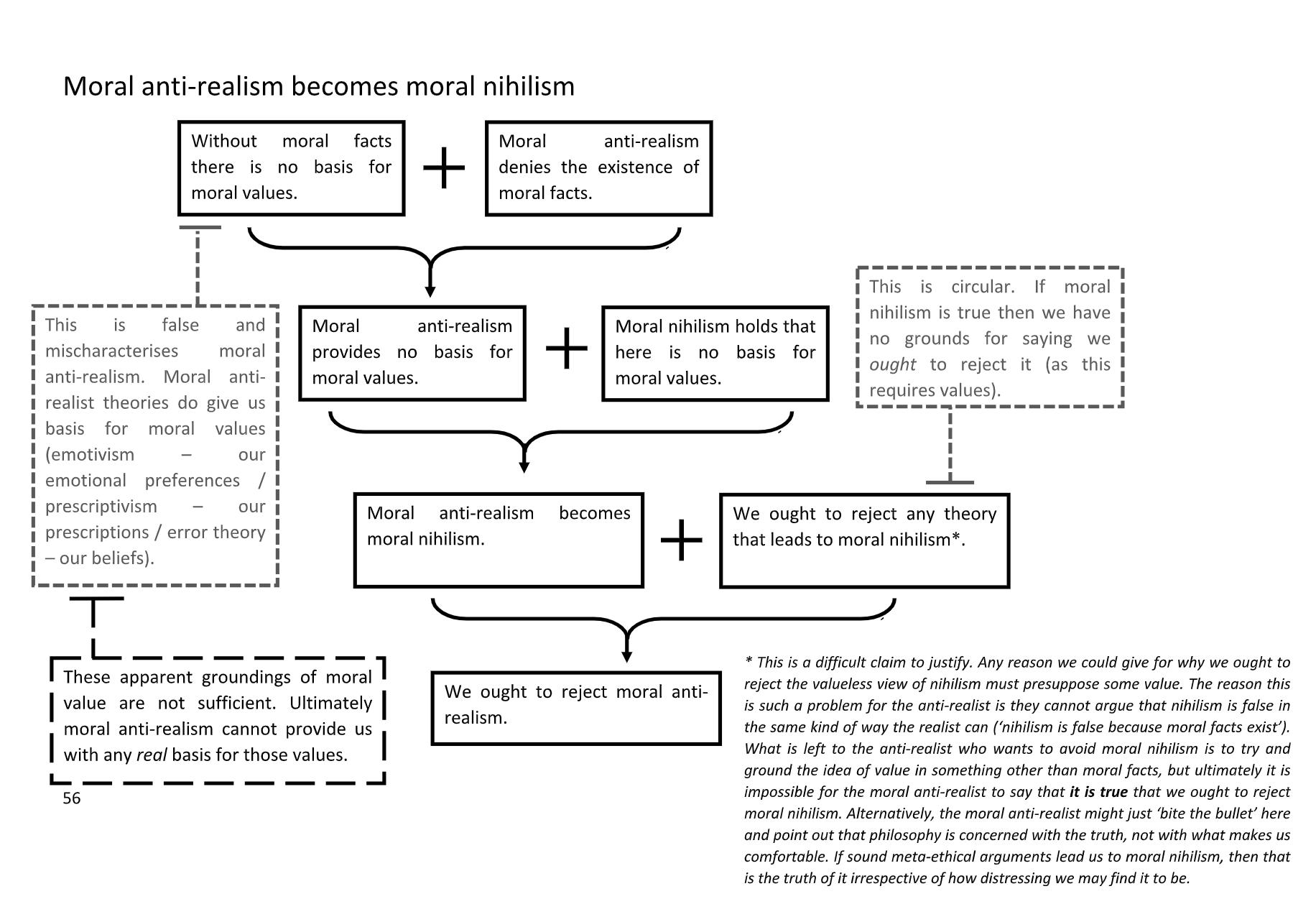
can Moral anit relaism accoutn for moral langage
